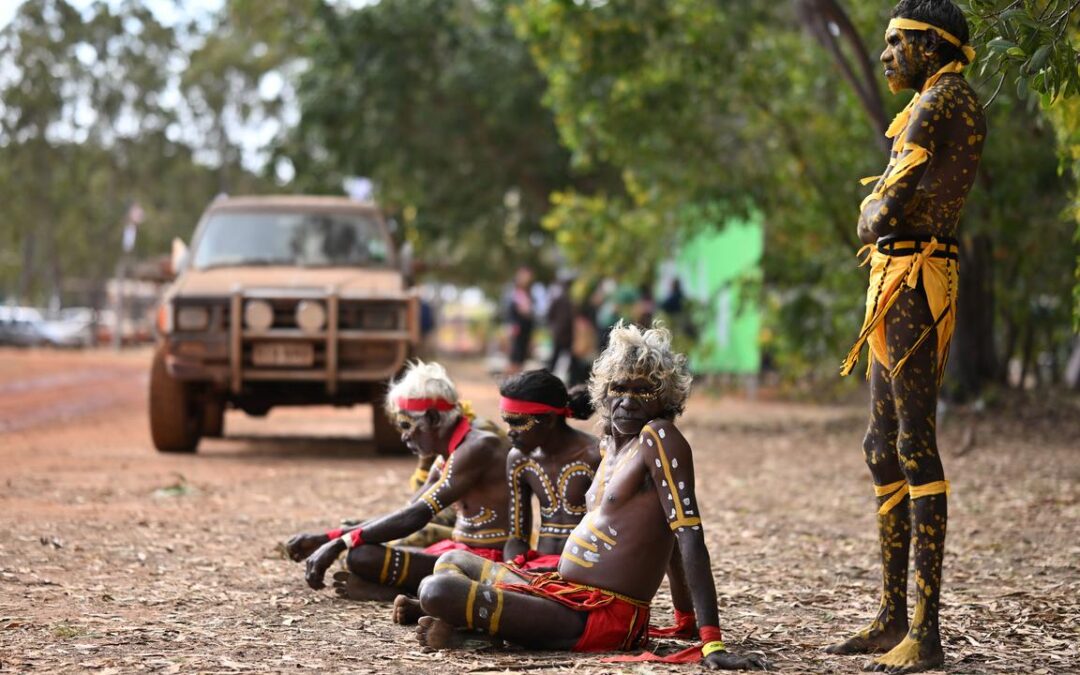
Garma organiser urges action on ‘horrors in statistics’
Political leaders have been warned their attendance at one of Australia’s largest cultural festivals is not enough to make progress for Aboriginal and Torres Strait Islander people.
Speaking at the annual Garma Festival at Gulkula, in northeast Arnhem Land, to a crowd that included several senior ministers and the prime minister, Yothu Yindi Foundation chief executive Denise Bowden said their presence was a powerful signal.
“But don’t leave Garma and leave things on endless repeat,” she said.
“Don’t be here to think your attendance here is enough.”
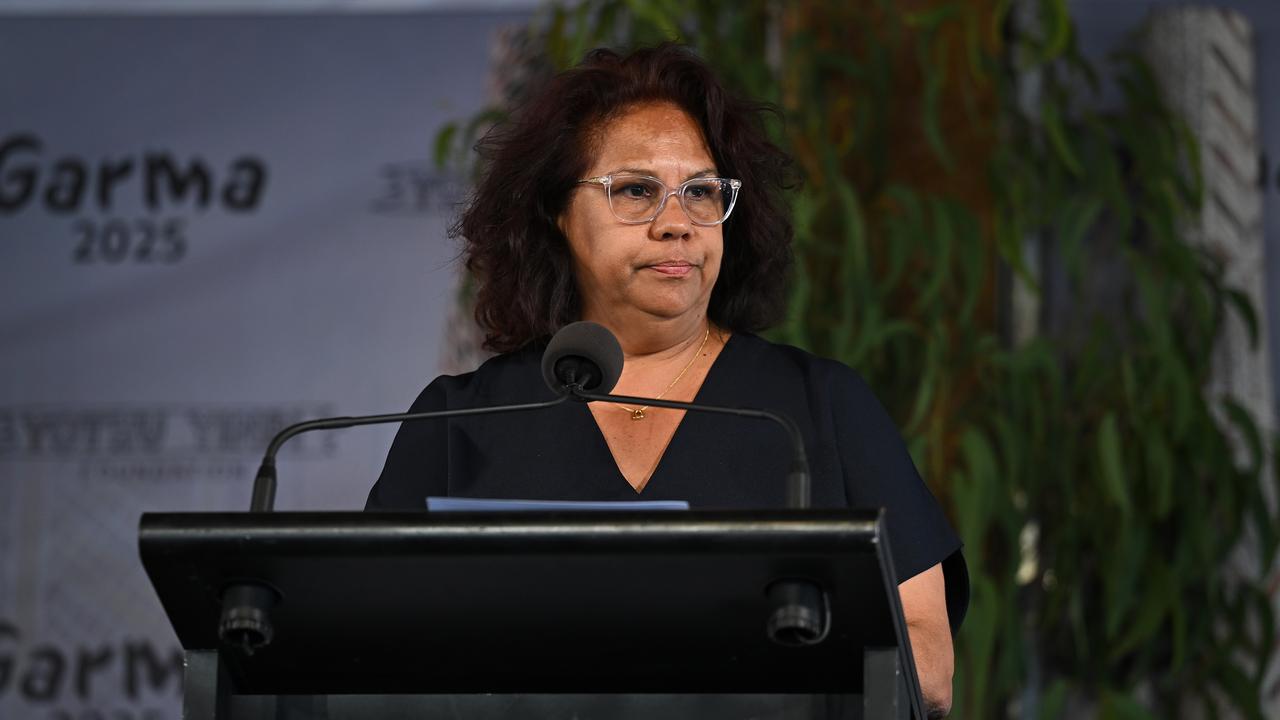
Prime Minister Anthony Albanese used his time at Garma to announce an economic partnership with Indigenous organisations, which he said built on Closing the Gap commitments and would empower communities to advocate for infrastructure on their lands.
In her powerful address to the festival on Saturday, Ms Bowden told the crowd that despite the success of Garma, now in its 25th year, visitors would be leaving behind a “world that remains in crisis mode”.
“On Tuesday, we will return to a life dominated by the simple fact that Aboriginal people in remote areas of Australia remain the most marginalised people in the country, if not the world,” she said.
Ms Bowden highlighted high rates of rheumatic heart disease in Arnhem Land, saying the community of Maningrida, in the Northern Territory, has the highest rate of the condition in the world.
She also pointed to the over-representation of First Nations people in custody to bring home her point, with the NT second only to El Salvador when it comes to incarceration rates.
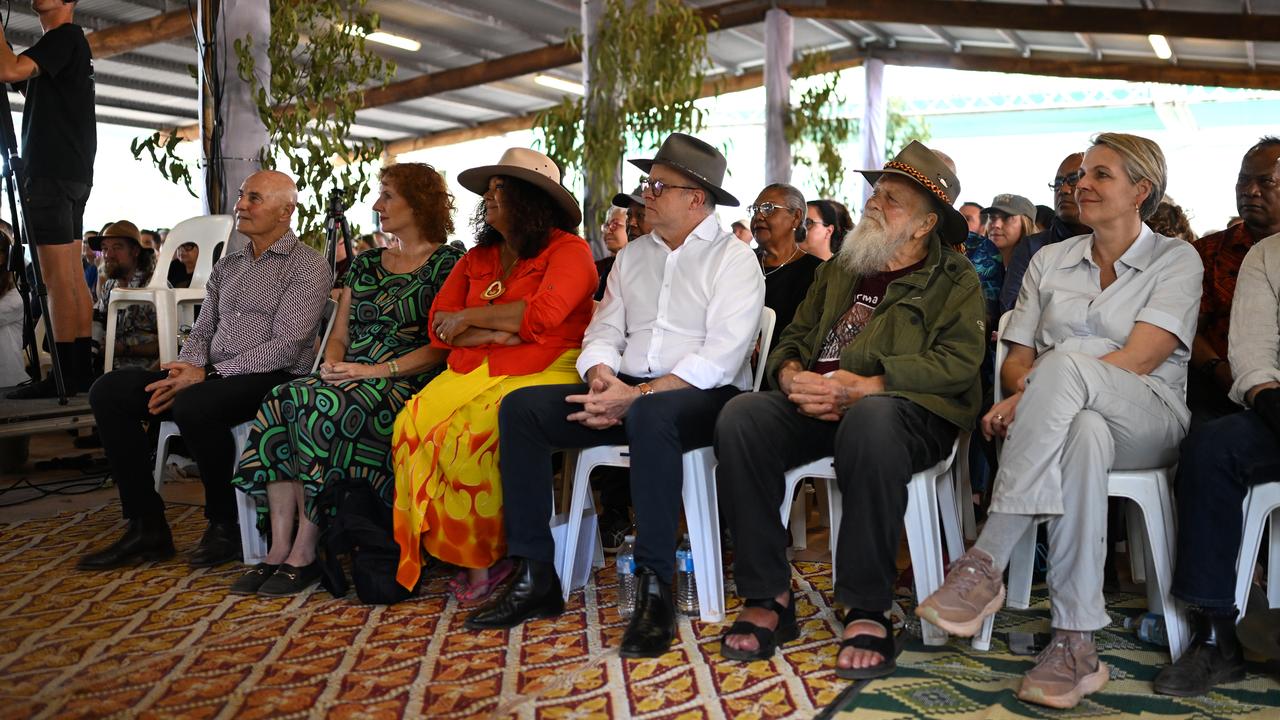
“We’ve become numb to this data and immune to the horrors that lie in the statistics,” she said.
Ms Bowden said the status quo was not acceptable, with recent Closing the Gap statistics showing four targets going backwards – adult incarceration, children in out-of-home care, suicide rates and child development.
She said the Yothu Yindi Foundation had long argued the Closing the Gap data reflected a fundamental failure in Australia’s governance systems, and that must change to make a real difference.
“There are good intentions and what is described as hard work, but without crunching systemic change, there will be no betterment,” she said.
“People suffer because of these failures of governance that are imposed upon us.”
13YARN 13 92 76
Lifeline 13 11 14
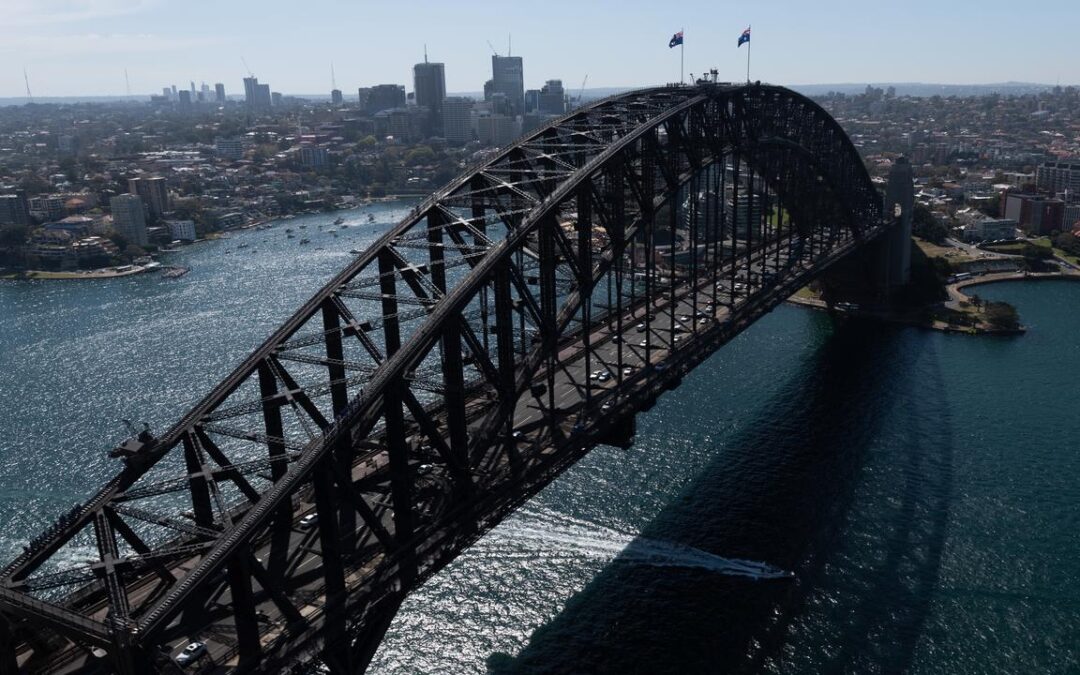
Thousands to march across Harbour Bridge for Palestine
The iconic Sydney Harbour Bridge will be the site of a major protest against the war in Gaza with politicians, union groups and humanitarian advocates expected to participate.
Rally organiser Palestine Action Group intends to draw attention to what the United Nations has described as “worsening famine conditions” in Gaza.
Organisers expect tens of thousands to march from the Sydney CBD across the bridge to North Sydney, but numbers could be affected by forecast rain.
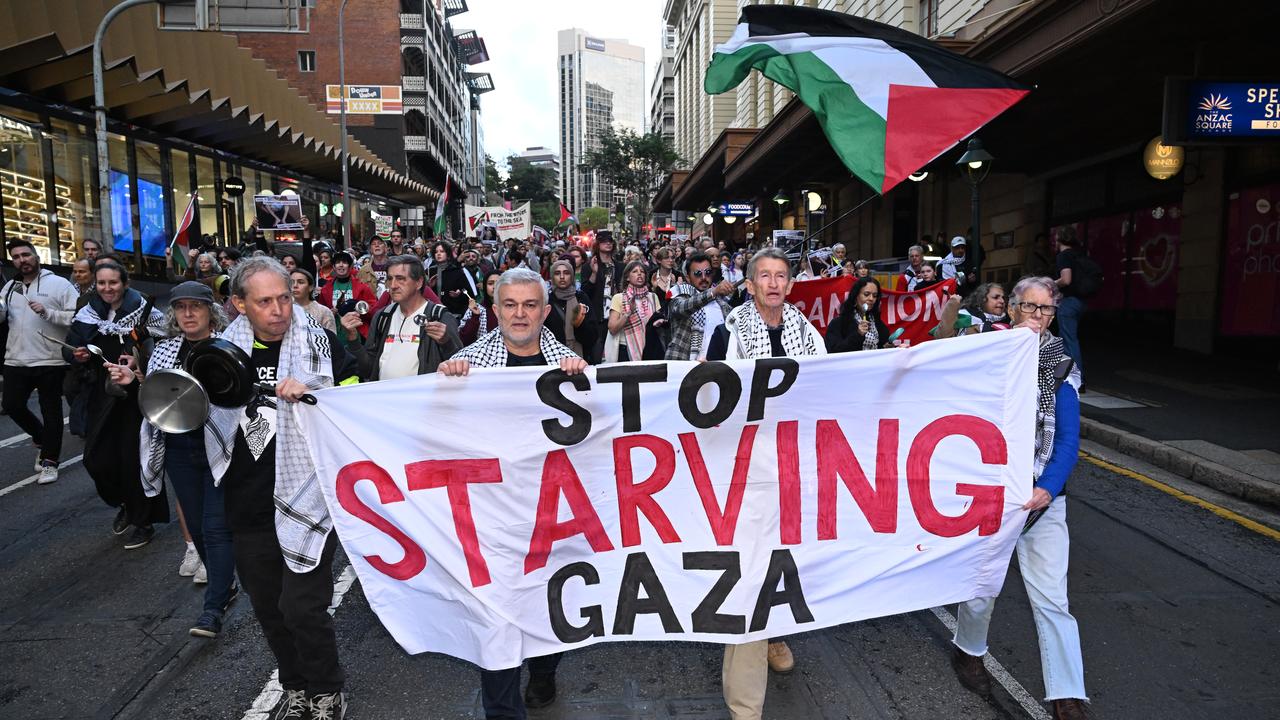
Police on Saturday sought an order to prohibit the protest but Supreme Court Justice Belinda Rigg rejected the application, meaning protesters will have immunity and protections from offences such as blocking or obstructing traffic or pedestrians.
A large police presence has been mobilised to ensure safety, with the bridge to be closed to motorists for most of Sunday.
“We ask that all the participants who are coming into the city to take part in this public assembly, listen to police, be respectful, understand that there will be large crowds,” acting Deputy Commissioner Peter McKenna said.
“We will have police right along the route and we’ll be making sure this is done as safely and peacefully as possible.”
Police warn they will take swift action against anyone who seeks to hijack the peaceful protest.
Several Labor MPs will defy Premier Chris Minns, joining the march alongside multiple Greens and independent colleagues.

In support of the demonstration, the Jewish Council of Australia described the occasion as “momentous”.
“We stand with and join those marching across the bridge and call for immediate action to stop the Gaza genocide,” executive officer Max Kaiser said in a statement.
Executive Council of Australian Jewry CEO Alex Ryvchin said there was “a lot of dismay in the community and wider society that a single judge has overruled a decision of the police and the elected government made in the interests of public safety”.
Similar demonstrations are planned on Sunday in Melbourne and Adelaide.
More than 60,000 Palestinians have been killed in the war in Gaza, according to local health authorities, while the United Nations says dozens of people have died in recent weeks due to starvation.
Israel’s military campaign began after militant group Hamas attacked Israel on October 7, 2023, killing 1200 people and taking more than 251 hostages.

Going for gold: female stars vie for Logies glory
Women are set to dominate television’s most glamorous night after securing all but one of the nominations for the coveted Gold Logie award.
The 65th Logie Awards will take place on Sunday, uniting the brightest stars in front of the camera and the dedicated teams behind the scenes.
Comedian Sam Pang will return as host for the third consecutive year.
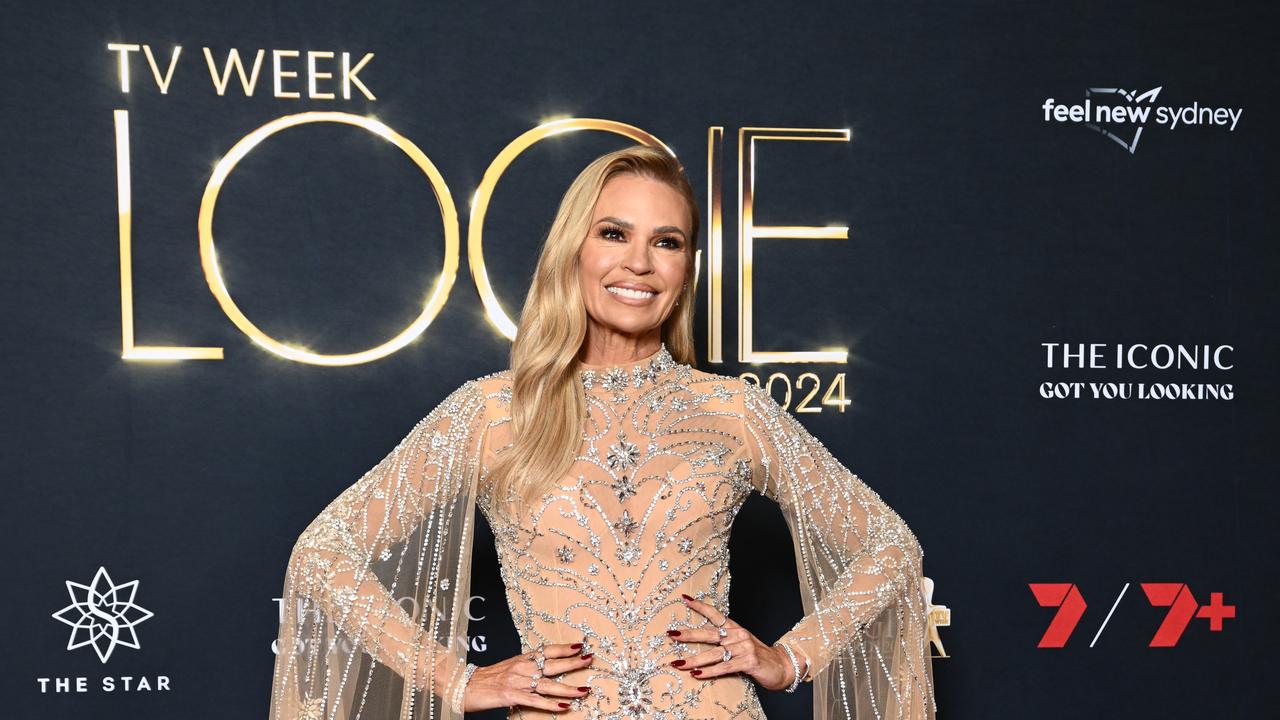
Seven TV personalities are vying for the Gold Logie, including 2023 winner Sonia Kruger, Ten’s I’m A Celebrity … Get Me Out Of Here! host Julia Morris, ABC’s Lisa Millar, Lynne McGranger from Home and Away, MasterChef Australia’s Poh Ling Yeow and A Current Affair host Ally Langdon.
Two-time Gold Logie winner Hamish Blake, host of Lego Masters, is the only man in the line for TV glory.
Rock legend Jimmy Barnes, singer-songwriter Richard Marx and Guy Sebastian are among those scheduled to perform at the event.
The 65th anniversary of the Logie Awards will also see a new gong introduced, the Ray Martin Award for Most Popular News or Public Affairs Reporter.
The inaugural nominees are Nine’s Ally Langdon, Tara Brown, and Peter Overton, the ABC’s David Speers and Sarah Ferguson, and Seven’s Michael Usher.
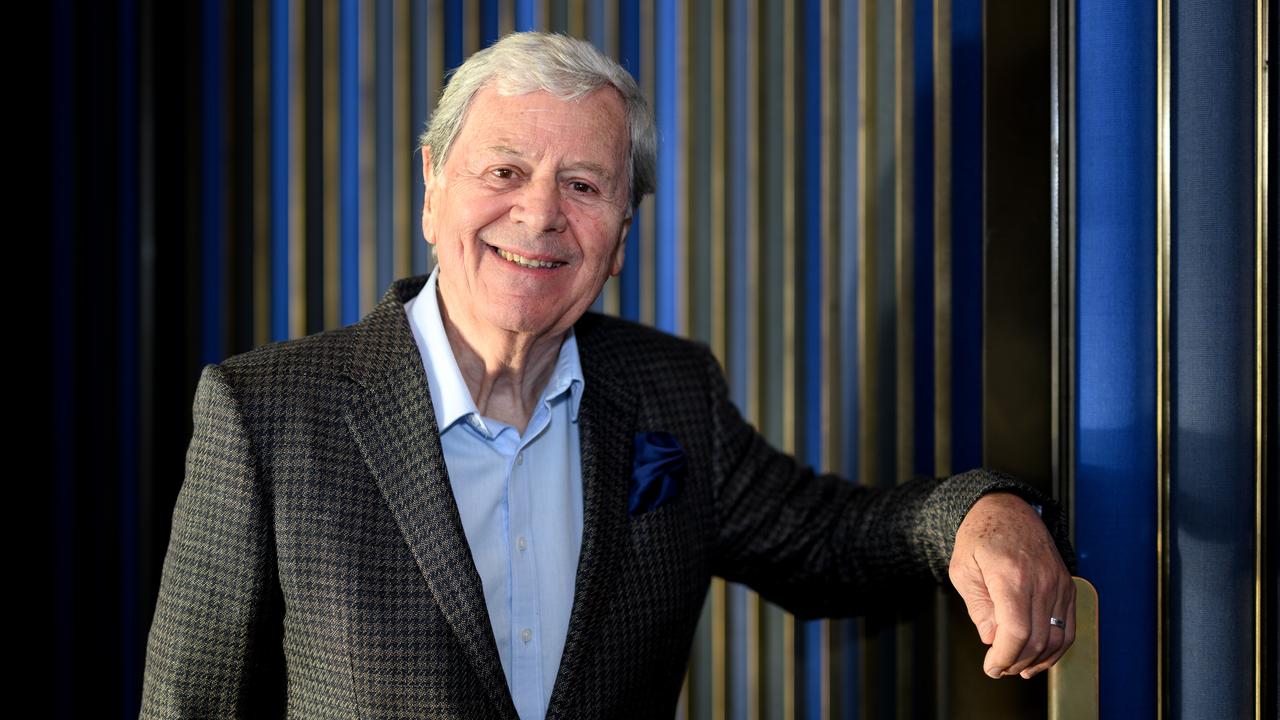
The limited Netflix series Apple Cider Vinegar, which tells the story of wellness influencer and conwoman Belle Gibson, received a massive eight nominations, including Best Supporting Actor, Best Supporting Actress and Best Lead Actress in a Drama.
ABC’s Fisk also earned a raft of nods, including for Best Comedy and Best Actress for Kitty Flanagan.
Nominations for Best Drama Program have been dominated by Netflix and the ABC, with standout titles including the rebooted Heartbreak High on the streaming service and The Newsreader from the national broadcaster.
In the Best Comedy Entertainment Program category, the ABC and Network 10 have split the nominations, with popular shows like Hard Quiz and Have You Been Paying Attention? leading the charge.
Two-time Logie winner Bluey, the beloved children’s cartoon, is also up for another award for Best Children’s Program.
The 65th TV WEEK Logie Awards will be held in Sydney on Sunday night and broadcast on the Seven Network.
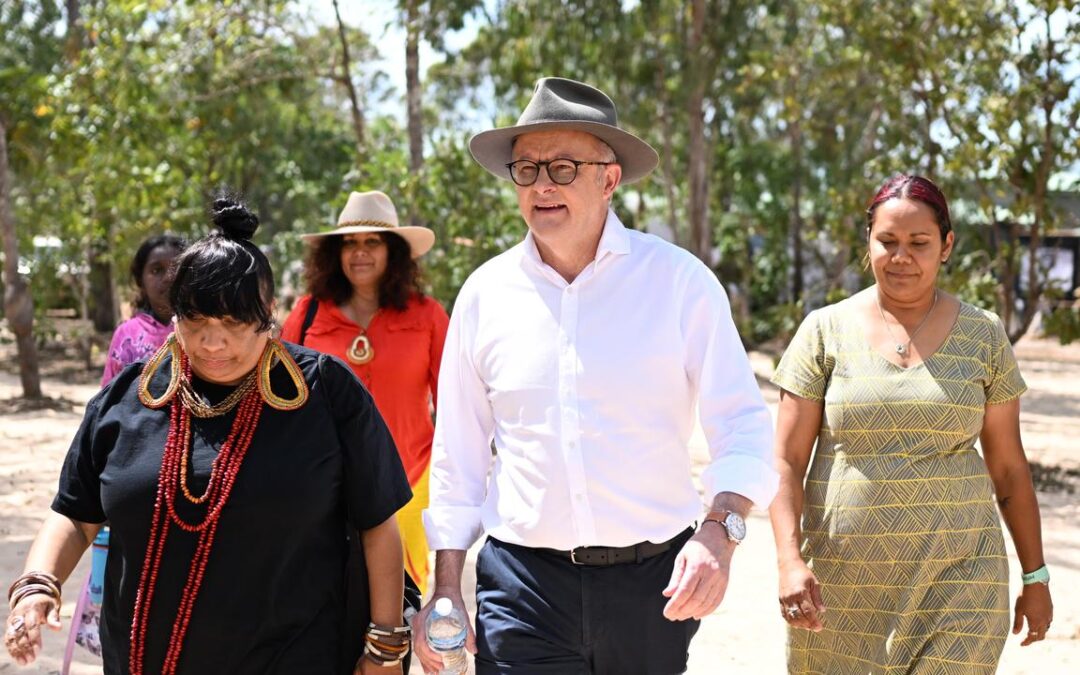
PM lays out economic path to Indigenous empowerment
While some welcome the prime minister’s focus on economic empowerment of Aboriginal and Torres Strait Islander people, others brand it a further step from truth-telling.
Anthony Albanese has used his address at the Garma Festival in northeast Arnhem Land to unveil an economic partnership with the Coalition of Peaks and First Nations Economic Empowerment Alliance.
“This builds on our commitment to the Closing the Gap Agreement, to its call for a new way of doing business and to the principle of shared decision-making,” he told the festival audience at Gulkula in the Northern Territory on Saturday.
The approach will allow traditional owners to advocate for infrastructure, housing and energy projects on their land and build equity beyond the land itself.
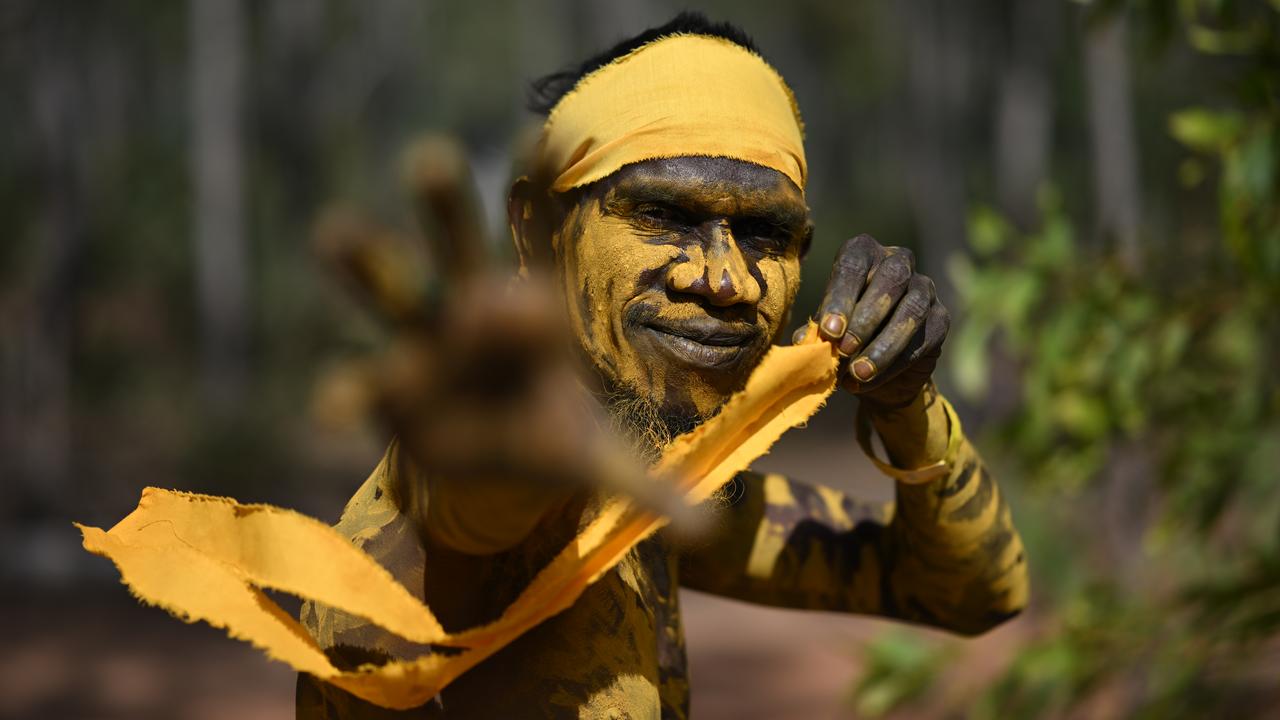
Coalition of Peaks lead convener Pat Turner said the partnership was about putting Indigenous communities in control of their economic future.
“Aboriginal and Torres Strait Islander people have been clear for decades that our community-controlled organisations are the best employers of our people, providing the foundation for our economic development,” she said.
Addressing the crowd at Garma, Yolngu leader and chair of the Yothu Yindi Foundation Djawa Yunupingu said he wanted a real economy for his people.
“We intend to use our lands and waters for our own future and the future of our children, and the future of our nation,” he said.
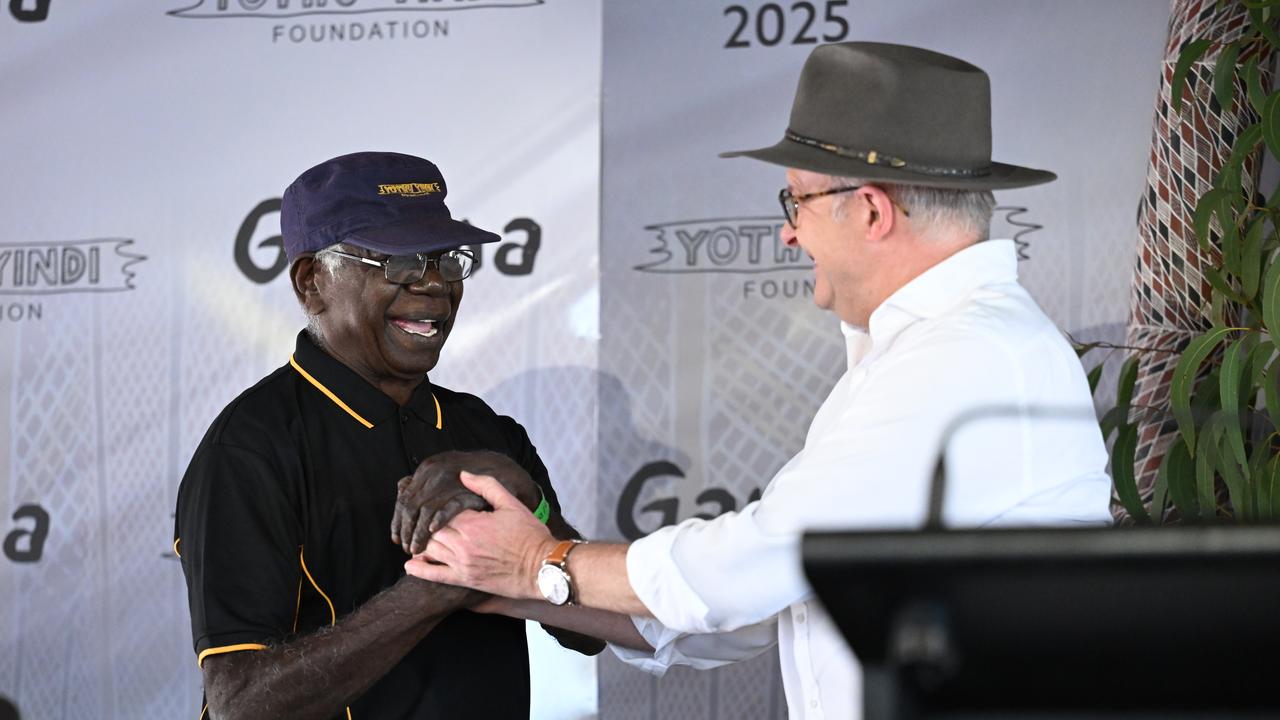
Mr Albanese also announced $70 million for Indigenous clean energy projects, $31 million for a mobile TAFE program and $75 million for native title reform under the partnership.
National Native Title Council chief executive Jamie Lowe said this funding showed the government was serious about supporting traditional owners.
“Investing in the native title sector is game-changing,” he said.
“This injection of capacity will mean more jobs, more opportunities for young people and stronger protection for our cultural heritage.”
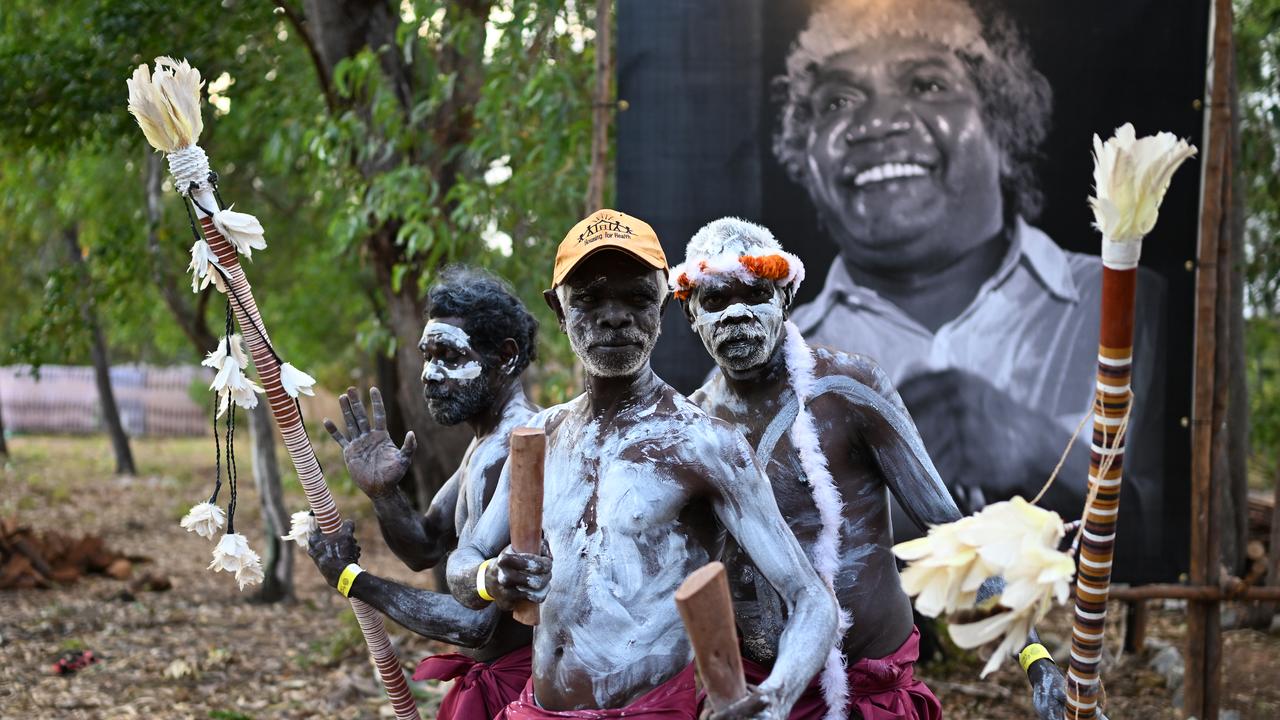
While some organisations met the prime minister’s announcement with praise, Aunty Glendra Stubbs, the elder in residence at community legal centre Knowmore, expressed disappointment in a lack of any mention of truth-telling.
The government backed away from its commitment to Makarrata in 2024 and though he acknowledged the work of the Victorian truth-telling inquiry Yoorrook, Mr Albanese made no mention of a national process in his address.
Aunty Glendra said it hurt to see truth-telling missing from the conversation.
“Our people have been asking for this for generations,” she said.
“Without truth, the pain of colonisation remains open – generation after generation.
“We can’t heal what we won’t name.”
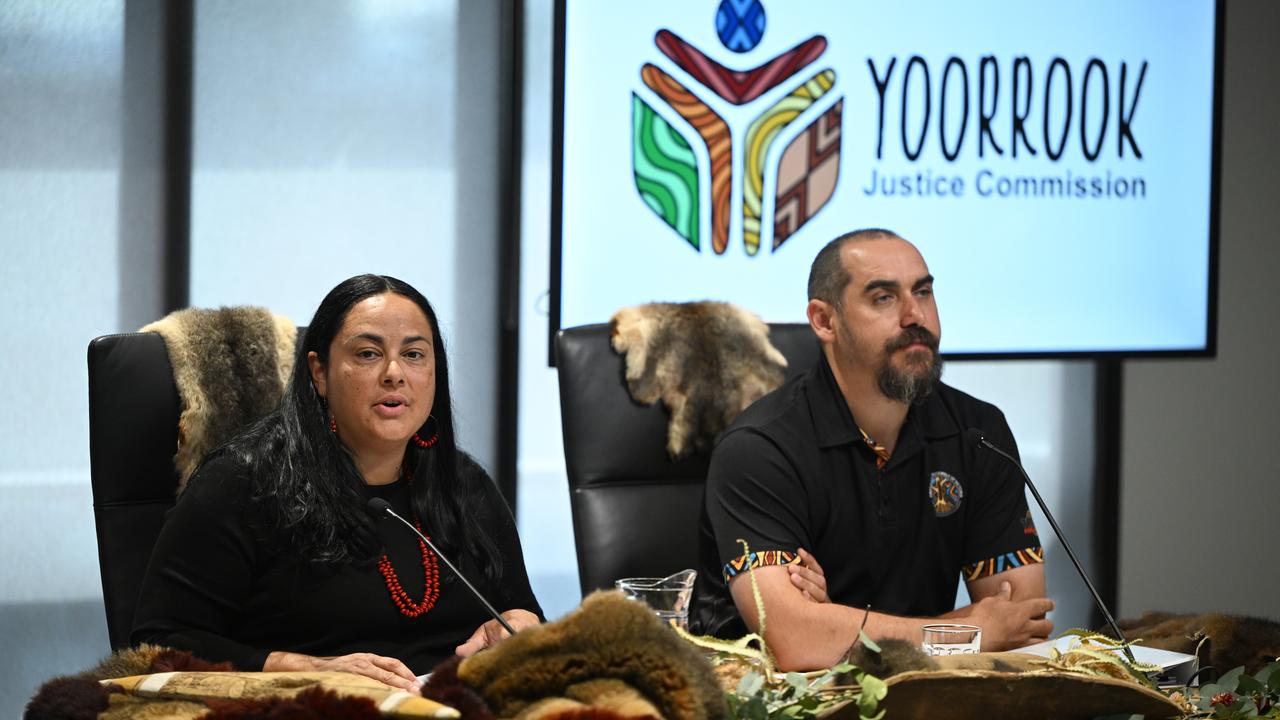
Victorian senator Lidia Thorpe said it was time for Mr Albanese to recommit to federal truth-telling and treaty.
“Cash for the corporations and a few utes are crumbs on the table while so many of our people are dying in custody and governments continue to steal and jail our children at record rates,” she said.
Garma is marking its 25th festival and Mr Yunupingu acknowledged those who started it in 1999 – his brothers – and the festival’s roots in promises of treaty, which were “washed down” by governments of the past but never forgotten.
Mr Yunupingu said he felt the disappointment again at the result of the voice referendum in 2023.
“We talked about it last year, we shed a tear to that and now it’s behind us,” he said, speaking about Mr Albanese’s visit to Garma in 2024.
“Even though we live with shattered dreams, we must keep looking to the future.”
13YARN 13 92 76
Lifeline 13 11 14

‘Massive disruption’: Harbour Bridge rally to go ahead
Pro-Palestinian protesters will march across the Sydney Harbour Bridge in a major show of force, as police scramble to ensure they have the resources to manage the court-sanctioned event.
Thousands of demonstrators are expected to attend the rally to highlight what the United Nations has described as “worsening famine conditions” in Gaza.
Police on Saturday implored those planning to take part to act peacefully and respectfully, warning them they would be closely monitored.
Supreme Court Justice Belinda Rigg rejected an application on behalf of the NSW police commissioner to shut down the Sunday march on public safety grounds.
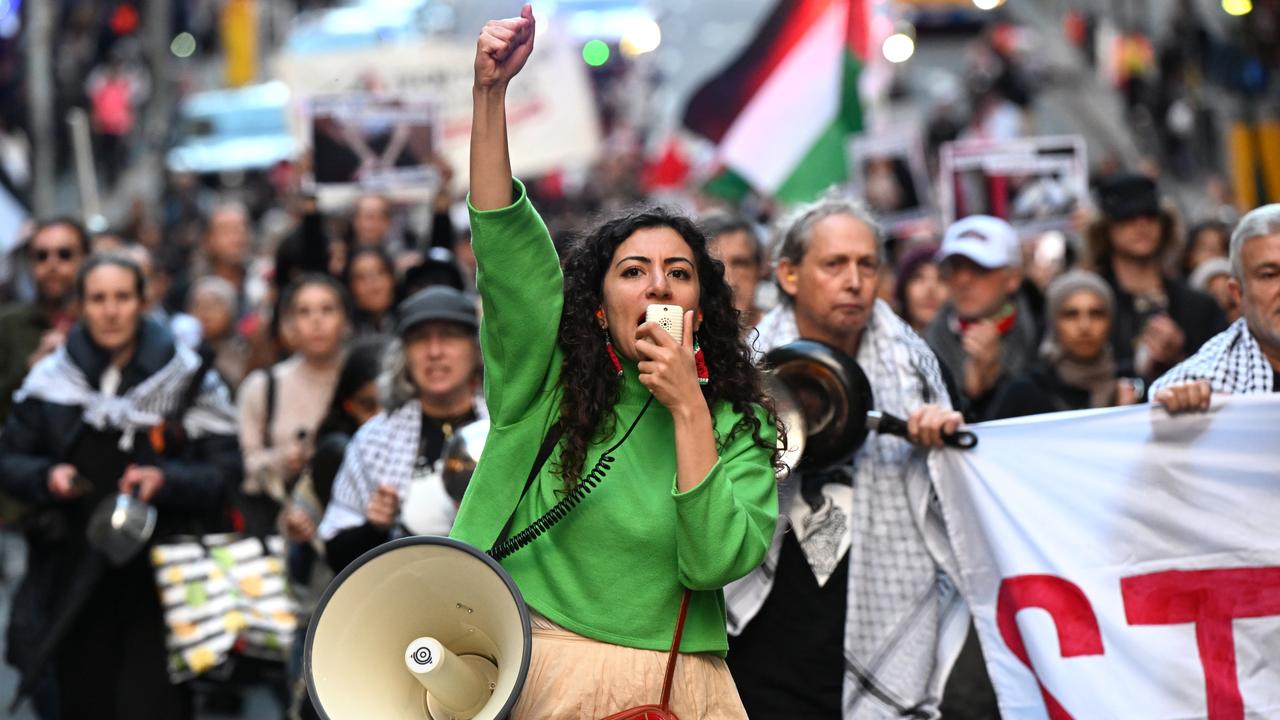
Organised by the Palestinian Action Group Sydney, the protest has garnered support from activists nationwide, human rights and civil liberties groups as well as several MPs and public figures such as former Socceroo Craig Foster.
Justice Rigg said in her judgment that arguments the rally would cause disruption were not sufficient to bar the protest.
“It is in the very nature of the entitlement to peaceful protest that disruption will be caused to others,” she said.
She noted there was significant support for the march from hundreds of organisations including Amnesty International, various churches, the Jewish Council of Australia, the nurses and midwives association and other trade unions.
The decision means protesters will have legal immunity and protections around offences like blocking or obstructing traffic or pedestrians.
Police were “scrambling” to alert road users that the bridge would be closed for the protest but would have the “whole gamut” of officers there to monitor the demonstration, acting deputy commissioner Peter McKenna said.
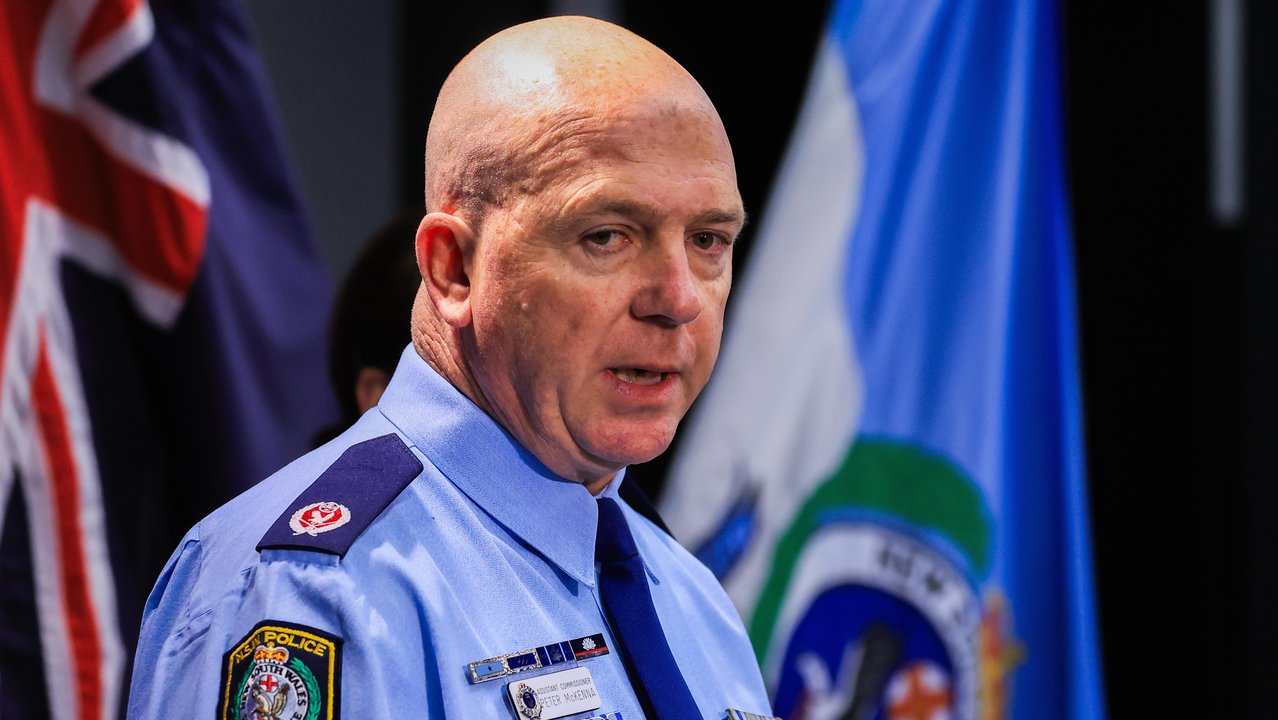
“We are there to keep everyone safe … we will have police right along the route and we’ll be making sure this is done as safely and peacefully as possible,” he told reporters on Saturday.
“Anyone who thinks they’re going to come along and hijack this protest or do the wrong thing, police will take swift action.”
Greens MP Sue Higginson described the court decision as a win for humanity and a defeat for the “anti-protest Minns Labor government”.
“The court was crystal clear that a protest being inconvenient does not mean it can be stopped. In fact, that’s the whole point of the protest,” she said.
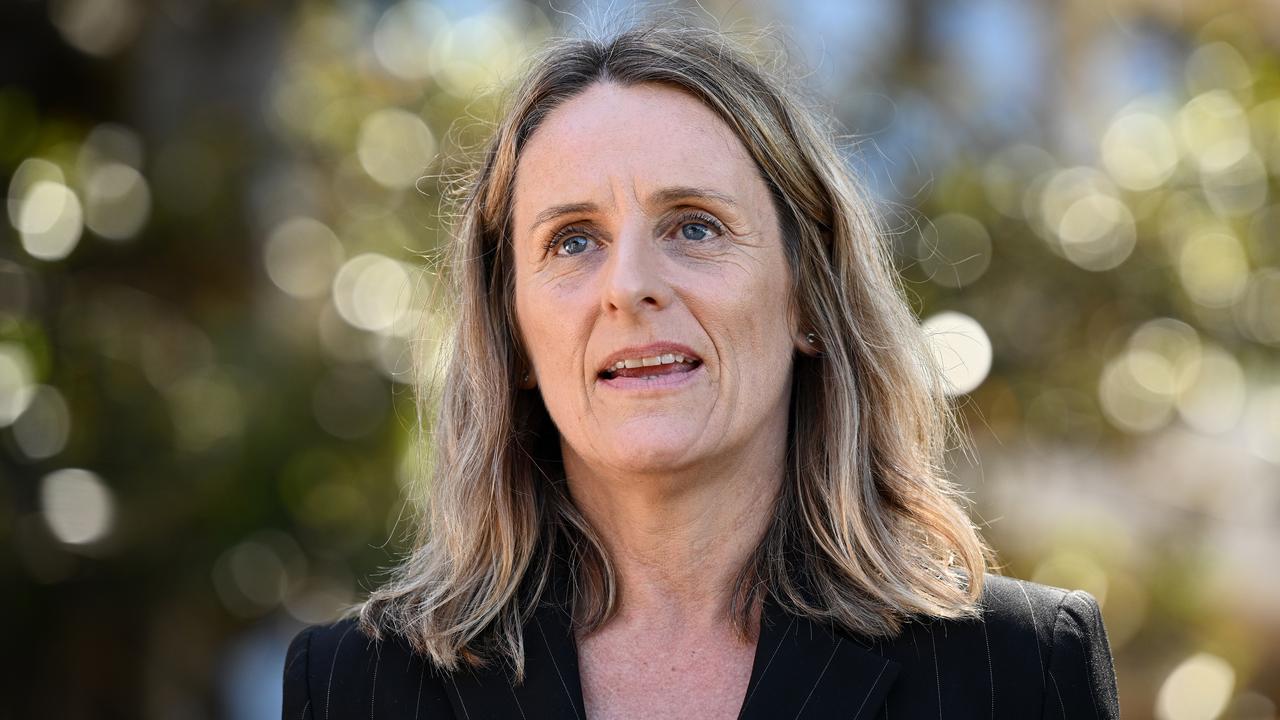
Protesters are expected to march from the CBD to North Sydney, with the bridge closed from 11.30am to about 4pm.
Police Minister Yasmine Catley urged people to avoid the city if possible.
“Make no mistake there is going to be massive, massive disruption … there will be significant delays,” she said.
“But we believe police will be able to handle the protest on the bridge so long as people are peaceful, that they listen to what police ask them to do and that they are sensible.”
In solidarity with their interstate peers, protesters in Melbourne are also gearing up to rally through the city’s CBD, aiming to reach the King Street Bridge.
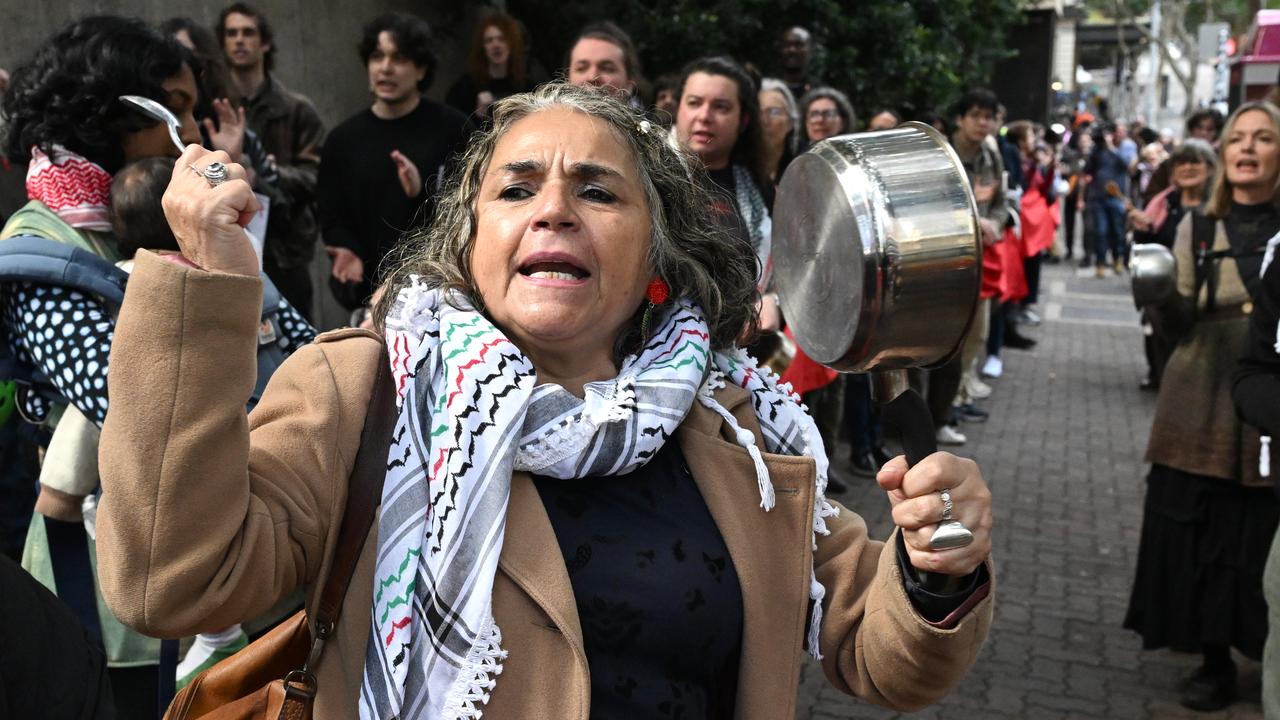
Executive Council of Australian Jewry CEO Alex Ryvchin said there was “a lot of dismay in the community and wider society that a single judge has overruled a decision of the police and the elected government made in the interests of public safety”.
Meanwhile, more than 60 per cent of Australians want tougher government measures to stop Israel’s military offensive in Gaza, a poll has found.
Respondents to the YouGov survey published on Friday and commissioned by the Australian Alliance for Peace and Human Rights believe Prime Minister Anthony Albanese’s condemnations of Israel have fallen short.
More than 60,000 Palestinians have been killed including more than 17,000 children, according to local health authorities, with reports of dozens of people dead in recent weeks due to starvation.
Israel’s campaign began after Hamas attacked Israel on October 7, 2023, reportedly killing 1200 people and taking 250 hostages.
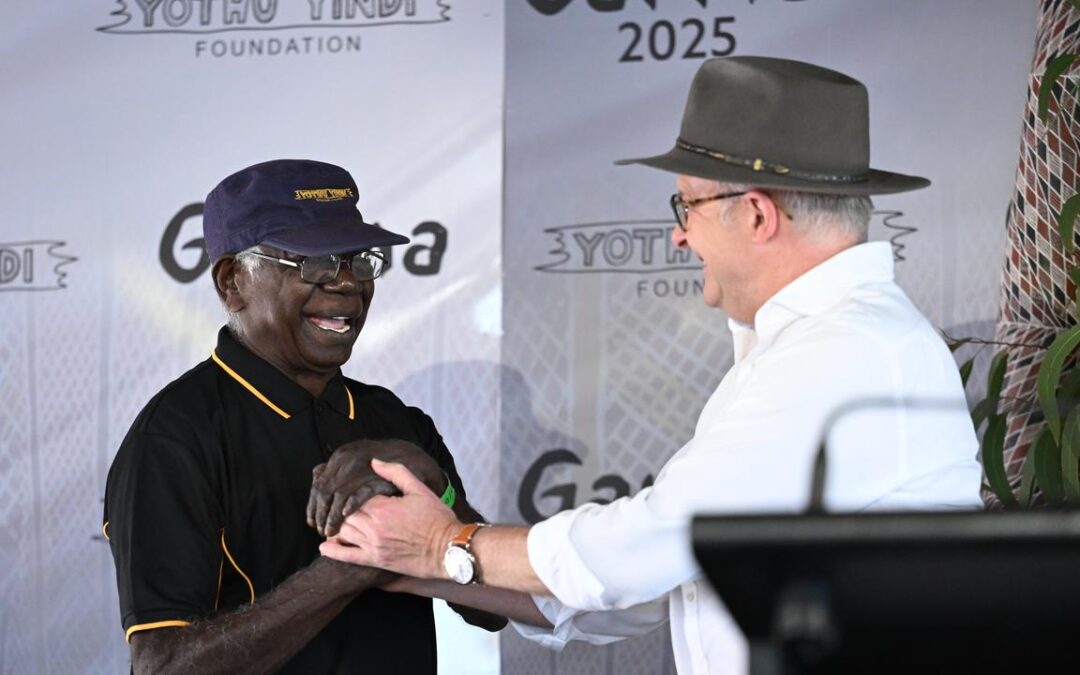
PM says Indigenous partnership to unlock true potential
A “real economy” is needed in Arnhem Land, say Indigenous leaders addressing a major Australian cultural gathering.
Yothu Yindi Foundation chair Djawa Yunupingu has told crowds at Garma Festival at Gulkula in northeast Arnhem Land his people plan on being part of the future.
“Yolngu people are not suddenly going to stop and rest and think everything is OK,” he said on Saturday.
“We intend to use our lands and waters for our own future and the future of our children, and the future of our nation.”
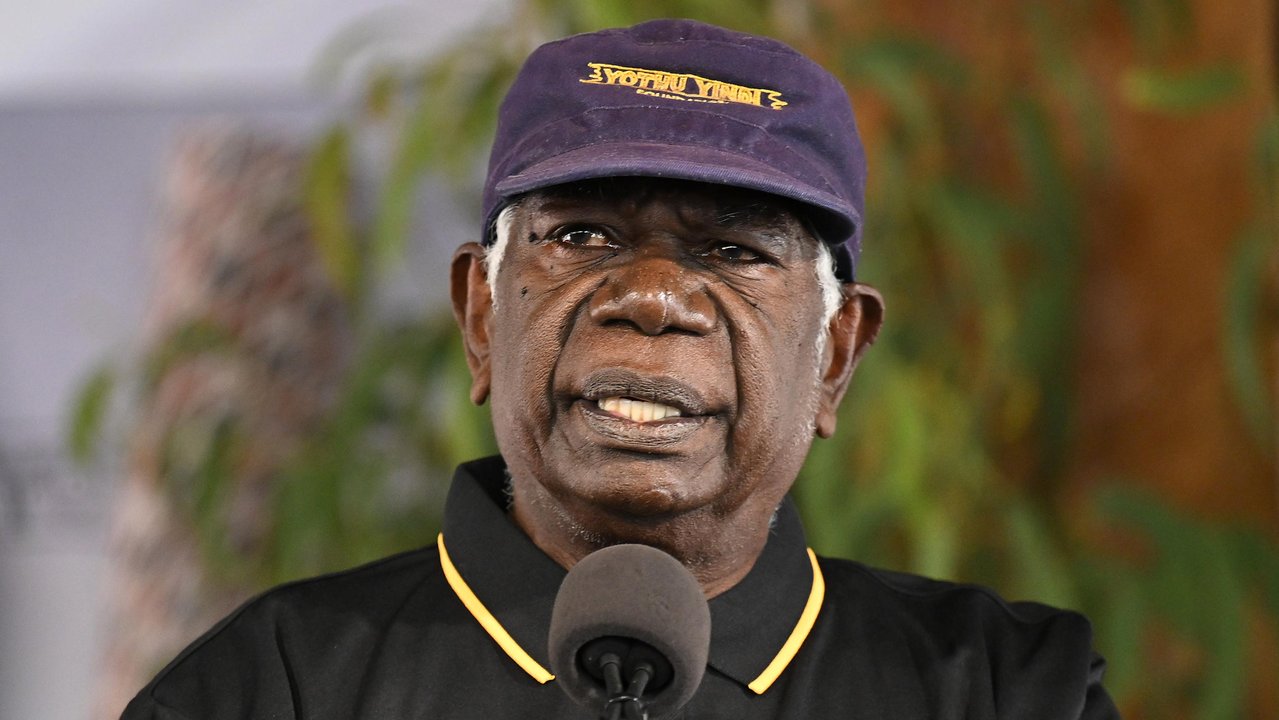
His comments came as Prime Minister Anthony Albanese used his Garma address to unveil an economic partnership with the Coalition of Peaks.
“Our government also wants to work with communities as economic decision-makers, to unlock the true potential of their land and their endeavour beyond passing transactions to lasting partnerships that create and share wealth,” he said.
The approach would allow traditional owners to advocate for infrastructure, housing and energy projects on their land and to build equity beyond the land itself.
Mr Albanese also announced $70 million for Indigenous clean energy projects, $75 million for native title reforms and $31 million for a mobile TAFE program under the partnership.
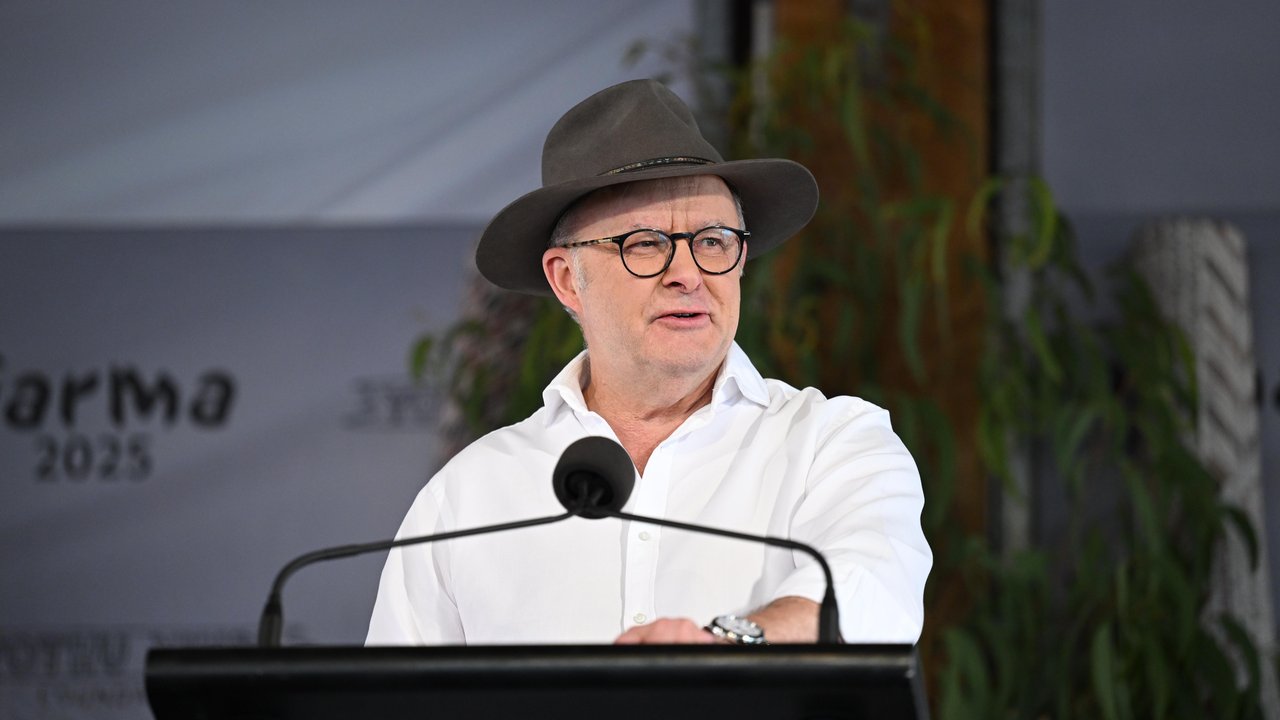
The prime minister said, “we have made a start but there is more to do”.
“We must end the stalemate that arises when native title organisations with little in the way of back-of-house, or legal and commercial expertise are expected to negotiate with multinational firms.”
Mr Albanese said the partnership builds on agreements made under Closing the Gap, saying it is a “new way of doing business”.
Closing the Gap has been a major topic of discussion at Garma, which has become a ground for political conversations and policy announcements while also focusing on culture and empowerment of the local Yolngu people.

Data released on Thursday revealed just four of 19 targets are on track to be met, with another four goals going backwards – adult incarceration, children in out-of-home care, suicide rates and child development.
Mr Albanese said Closing the Gap data underlined the fact that a different, dedicated approach was required to address these issues.
“Reports and reviews have their place but they are not a substitute for outcomes, results,” he said.
“Creating a process matters but it is not the same thing as making progress.”
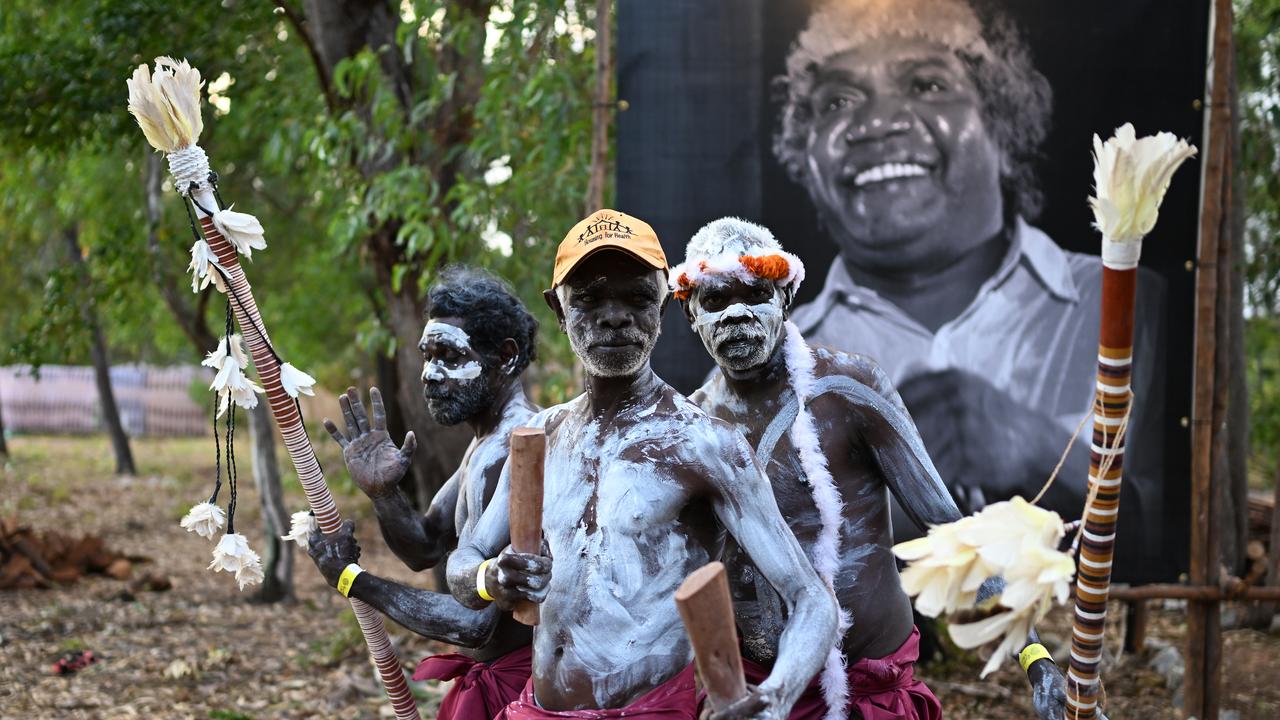
Mr Yunupingu closed his address by telling the prime minister he was open to doing business together.
“My brothers and sisters are telling me now, we have serious business,” he said.
“They are reminding me that making hard decisions with serious people is what leadership is all about.”
13YARN 13 92 76
Lifeline 13 11 14
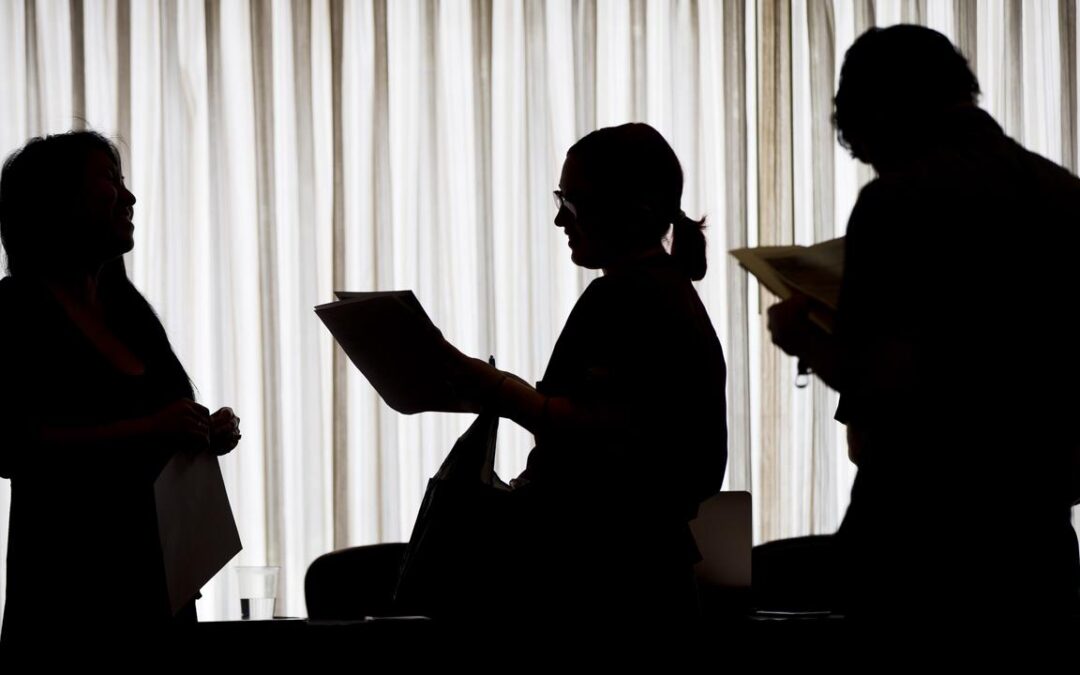
Trump fires jobs data commissioner after dismal report
US President Donald Trump has removed the head of the agency that produces the monthly jobs figures after a report showed hiring slowed in July and was much weaker in May and June than previously reported.
Trump, in a post on his social media platform on Friday, alleged the figures were manipulated for political reasons and said that Erika McEntarfer, the director of the Bureau of Labor Statistics, who was appointed by former president Joe Biden, should be fired.
He provided no evidence for the charge.
“I have directed my Team to fire this Biden Political Appointee, IMMEDIATELY,” Trump said on Truth Social.
“She will be replaced with someone much more competent and qualified.”
After his post, Labour Secretary Lori Chavez-DeRemer said on X that McEntarfer was no longer leading the bureau and that William Wiatrowski, the deputy commissioner, would serve as the acting director.
“I support the president’s decision to replace Biden’s commissioner and ensure the American people can trust the important and influential data coming from BLS,” Chavez-DeRemer said.
Friday’s jobs report showed that just 73,000 jobs were added in July and that 258,000 fewer jobs were created in May and June than previously estimated.
McEntarfer was nominated by Biden in 2023 and became the Commissioner of the Bureau of Labor Statistics in January 2024. Commissioners typically serve four-year terms but since they are political appointees can be fired. The commissioner is the only political appointee of the agency, which has hundreds of career civil servants.
Trump focused much of his ire on the revisions the agency made to previous hiring data. Job gains in May were revised down to just 19,000 from 125,000, and for June they were cut to 14,000 from 147,000. In July, only 73,000 positions were added. The unemployment rate ticked up to a still-low 4.2 per cent from 4.1 per cent.
“No one can be that wrong? We need accurate Jobs Numbers,” Trump wrote.
“She will be replaced with someone much more competent and qualified. Important numbers like this must be fair and accurate, they can’t be manipulated for political purposes.”
The monthly employment report is one of the most closely-watched pieces of government economic data and can cause sharp swings in financial markets. The disappointing figure sent US market indexes about 1.5 per cent lower Friday.
While the jobs numbers are often the subject of political spin, economists and Wall Street investors — with millions of dollars at stake — have always accepted US government economic data as free from political manipulation.
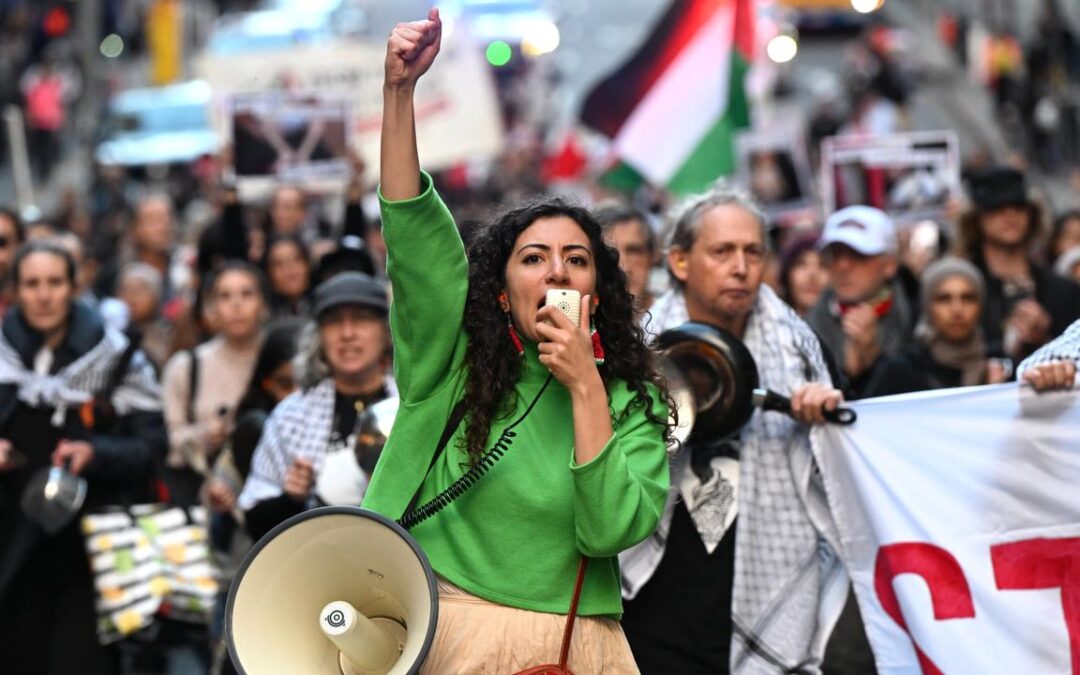
Court win for pro-Palestinian rally on Harbour Bridge
Pro-Palestinian protesters will march across the Sydney Harbour Bridge after a court authorised the rally despite police attempting to have it prohibited.
NSW Supreme Court Justice Belinda Rigg rejected a police application to shut down the Sunday march on public safety grounds.
Thousands of protesters are expected at the demonstration to highlight what the United Nations has described as “worsening famine conditions” in Gaza.
Organised by the Palestinian Action Group Sydney, the protest has garnered support from activists nationwide, human rights and civil liberties groups as well as several MPs and public figures such as former Socceroo Craig Foster.
Arguments were presented to the court on Friday with Justice Rigg choosing to reserve her decision until Saturday morning.
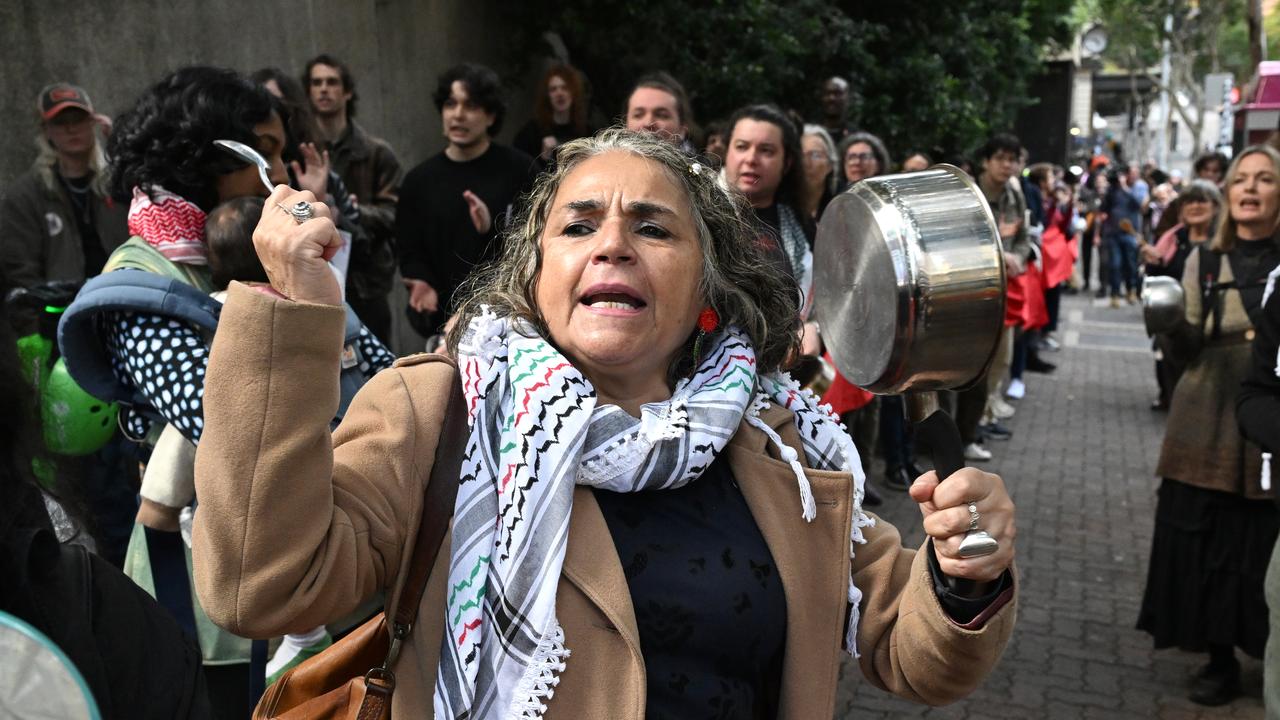
In her judgment, she refused the police commissioner’s application, saying arguments the rally would cause disruption on the bridge were not sufficient to bar the protest.
“It is in the very nature of the entitlement to peaceful protest that disruption will be caused to others,” she said.
Justice Rigg noted there was significant support for the march from hundreds of organisations including Amnesty International, various churches, the Jewish Council of Australia, the nurses and midwives association and other trade unions.
The decision means protesters will have certain legal immunity and protections from offences like blocking or obstructing traffic or pedestrians.
The decision was a win for humanity and a defeat of the “anti-protest Minns Labor government”, NSW Greens MP Sue Higginson said.
“The court was crystal clear that a protest being inconvenient does not mean it can be stopped. In fact, that’s the whole point of the protest,” she said.
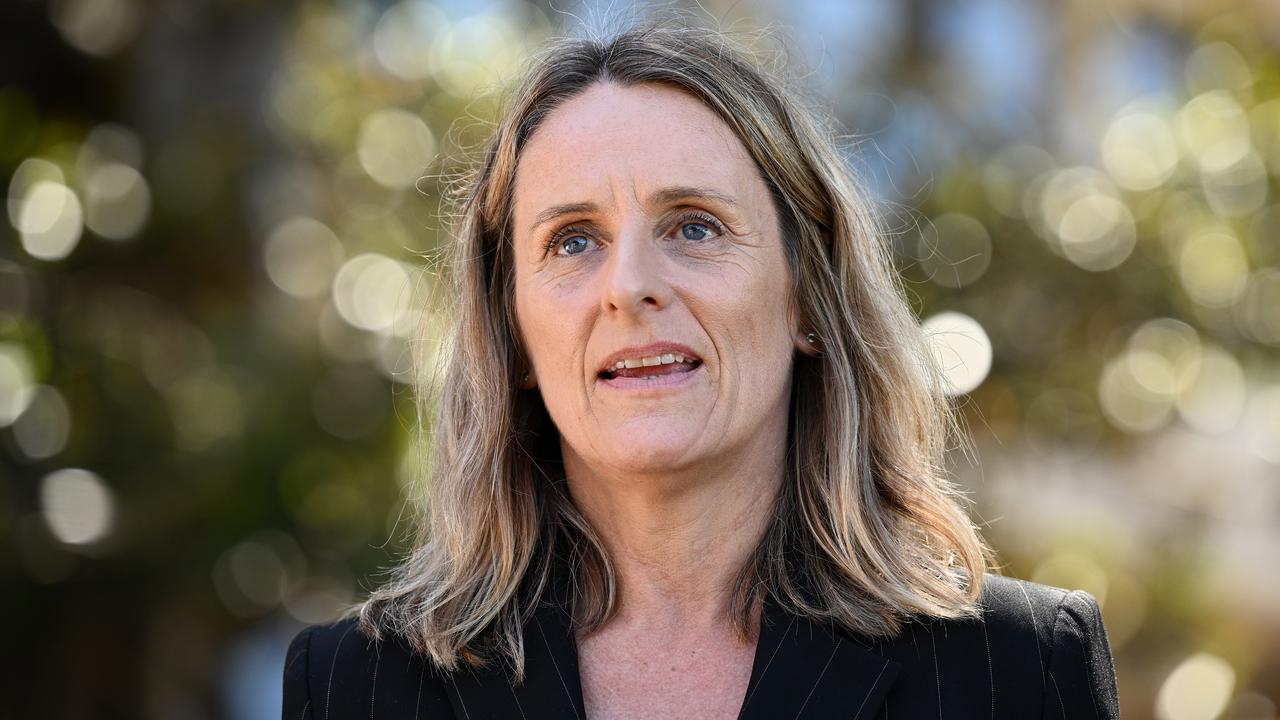
Ms Higginson said people had the absolute right to protest “whether police want them to and whether the premier wants them to or not, and tomorrow our iconic Sydney Harbour Bridge and our humanity will speak to the world”.
Protesters are expected to march from the CBD, across the bridge to North Sydney.
In solidarity with their interstate peers, protesters in Melbourne are gearing up to rally through the city’s CBD, aiming to reach the King Street Bridge.
Meanwhile, more than 60 per cent of Australians want tougher government measures to stop Israel’s military offensive in Gaza, a poll has found.
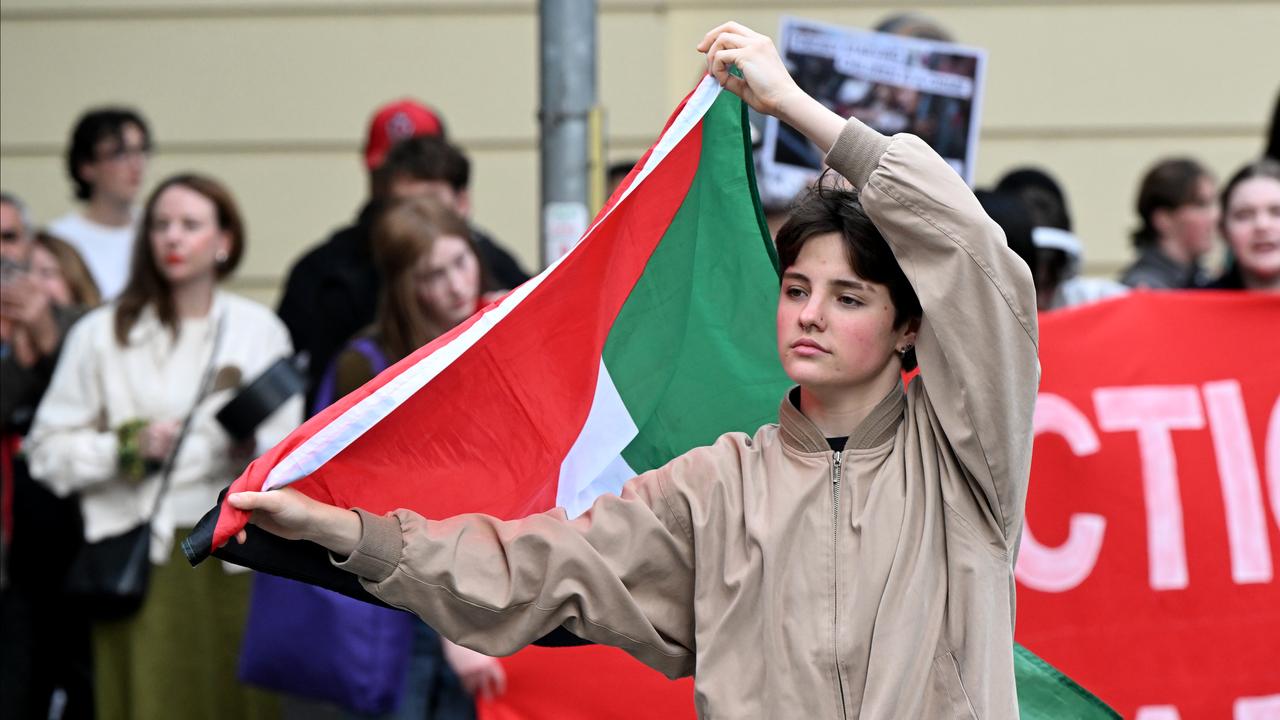
Respondents to the YouGov survey published on Friday and commissioned by the Australian Alliance for Peace and Human Rights believe Prime Minister Anthony Albanese’s condemnations of Israel have fallen short.
“While the government has recently signed a statement calling for an immediate ceasefire, 61 per cent of Australians believe this is not enough,” the alliance said.
“(Australians) want to see concrete economic, diplomatic and legal measures implemented.”
The poll surveyed 1507 Australian voters in the last week of July, coinciding with a deteriorating starvation crisis due to the Israeli government blocking aid from entering Gaza and while diplomatic efforts from countries such as Canada have ramped up.
The results highlighted how the nearly two-year long war on Gaza had resonated with Australians, YouGov director of public data Paul Smith said.
More than 60,000 Palestinians have been killed including more than 17,000 children, according to local health authorities, with reports of dozens of people dead in recent weeks due to starvation.
Israel’s campaign began after Hamas attacked Israel on October 7, 2023, reportedly killing 1200 people and taking 250 hostages.
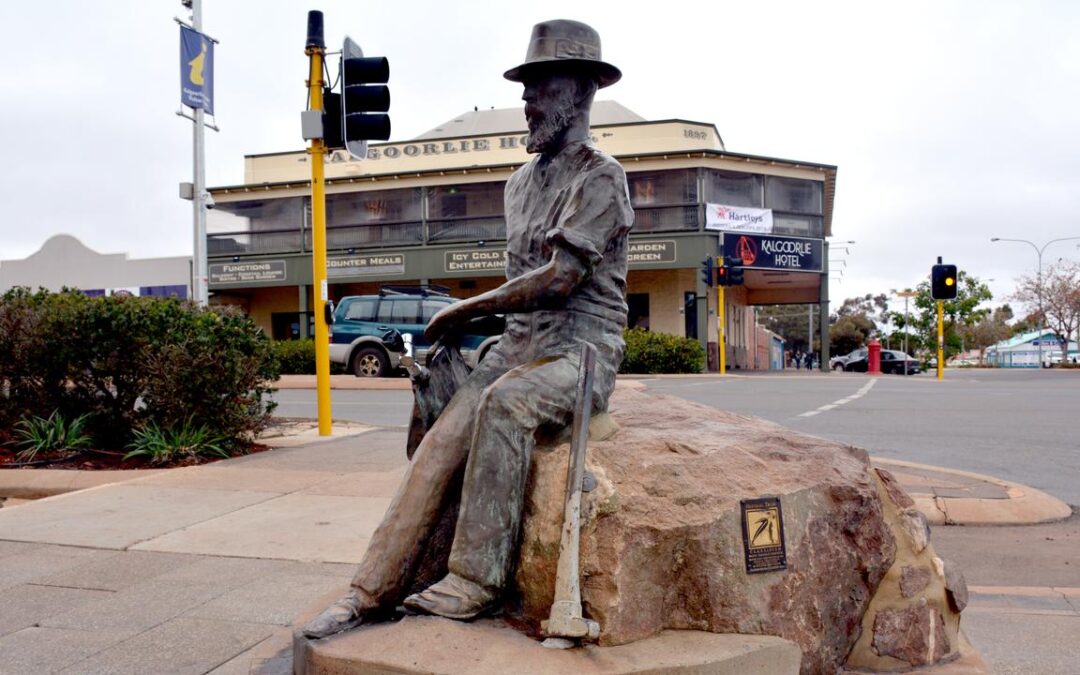
Bull market sends mining summit back to golden age
Goldminers have long hogged the limelight at the Diggers and Dealers mining forum.
The annual conference in the remote mining town of Kalgoorlie, in the Western Australian Goldfields region, is the glittering highlight of the resources industry’s events calendar.
Up-and-coming miners prize their shot to flaunt their wares to investors, while the majors covet the chance to snag an award at the glitzy gala dinner.
In recent years, goldminers have been supplanted at the top of the roster by the battery minerals crowd, buoyed by the burgeoning demand for ores like lithium and nickel essential to the manufacturing of electric vehicles.
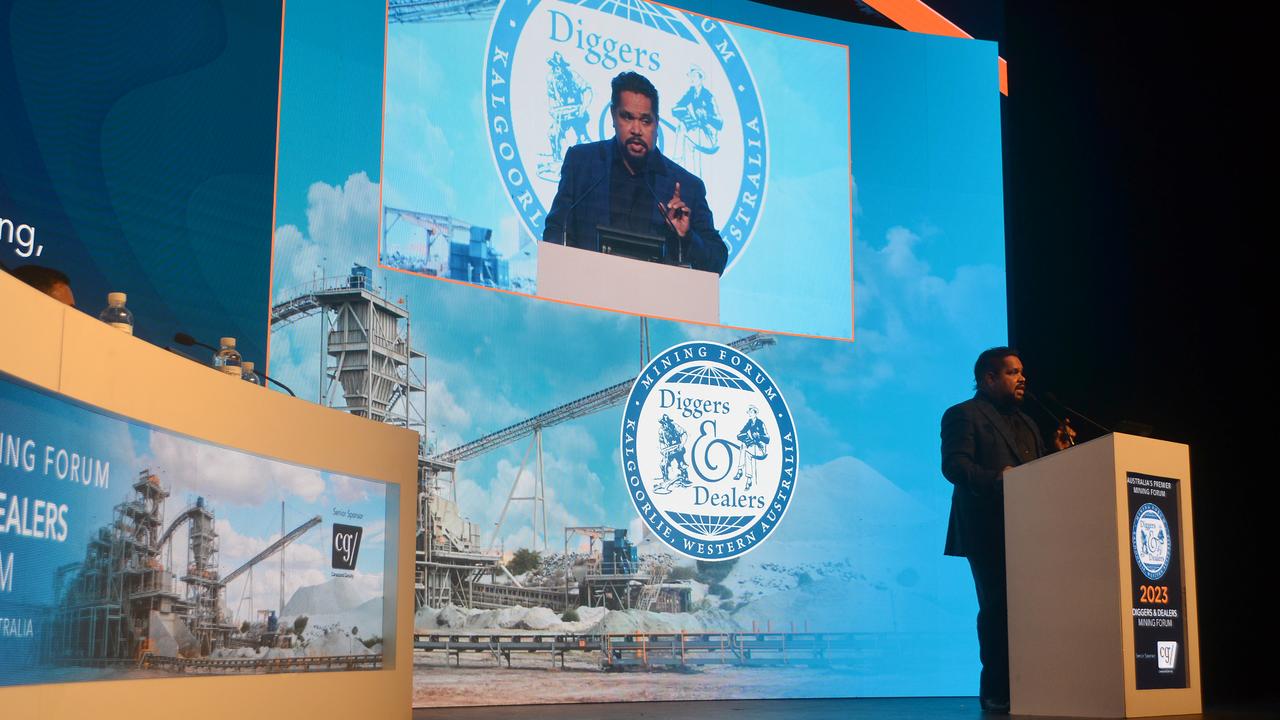
But a record run has sent the price of bullion soaring and investors flocking back to the precious metal.
Amid an upswing in mergers and acquisitions activity among goldminers, the largest has been Northern Star’s $5 billion takeover of De Grey Mining.
Northern Star’s Super Pit dominates the Kalgoorlie landscape.
The ASX giant’s largest asset is a popular tourist destination, with thousands of visitors drawn to the pit’s public lookout each year to watch colossal mining trucks wind their way up the serpentine access track or see scheduled blasts shake the sheer rock walls below.
But the De Grey deal handed Northern Star a project that could dwarf the 130-year-old deposit, which has been plagued by productivity and cost headwinds in the past year.
The newly-acquired Hemi deposit, in the iron-ore dominated Pilbara region, contains an estimated 11 million ounces of gold.
That would fetch more than $55 billion at current prices.
The project, which is still seeking regulatory approval, has a slightly lower grade than the Super Pit at 1.3 grams per tonne.
But given the ravenous appetite for gold, even much lower grade deposits will attract interest at the Diggers conference.
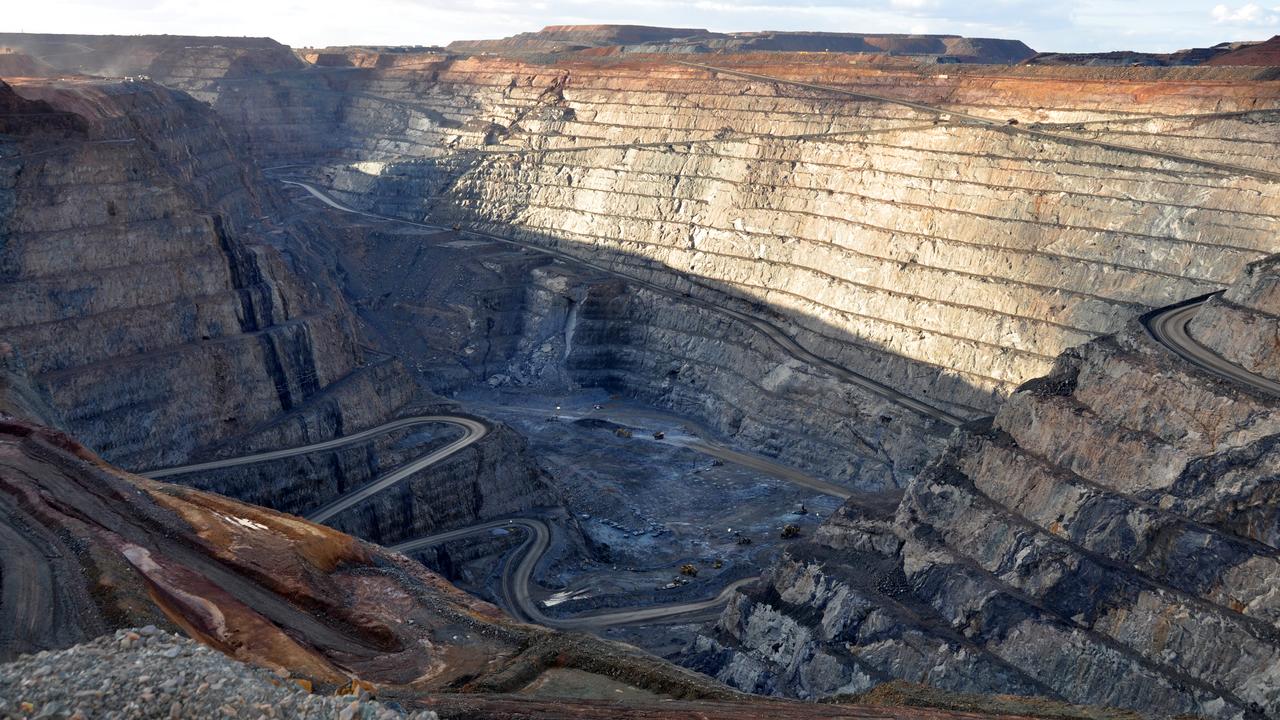
Forum chair Jim Walker says the mood in the industry is upbeat.
“Gold’s still going very, very well, lithium is coming back up again,” he told AAP.
“So it’s going to be a very positive conference from that point of view.”
Lithium miners have been buoyed after a recovery in spodumene prices, after a global rout carved more than 90 per cent off the price of the mineral.
Prices have climbed 50 per cent since they bottomed out in June, with the stronger-than-expected uptake of electric vehicles now driving speculation lithium production will fall short of soaring demand.
But share prices for former market darlings IGO, Pilbara Minerals and Liontown Resources still languish well below the heights of two years ago.
While gold presenters now outweigh lithium at the conference, battery minerals producers will still make their presence felt.
Now in its 34th year, the forum is just as important to the Kalgoorlie economy as it is for micro-cap explorers looking to get their first project up.
More than 3000 people will flock to the town, swelling its population more than 10 per cent.
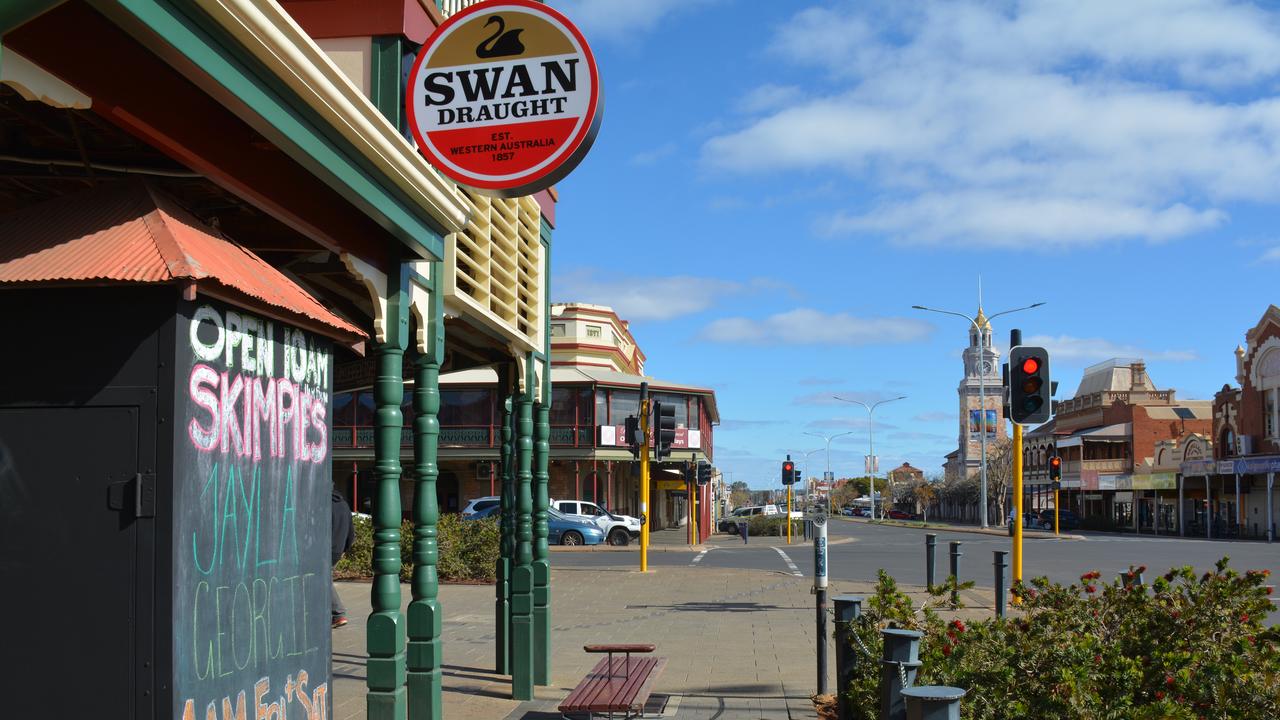
At Wednesday’s gala night more than 1300 attendees will be catered for and a plane-load of staff flown in to serve them, given the limited staff and facilities in Kalgoorlie.
Marquees will be erected to house 154 exhibitors, while 65 presenters will hold court over three days.
It’s no challenge for forum director Suzanne Christie, who has been organising the tricky logistics of the event from day one, Mr Walker said.
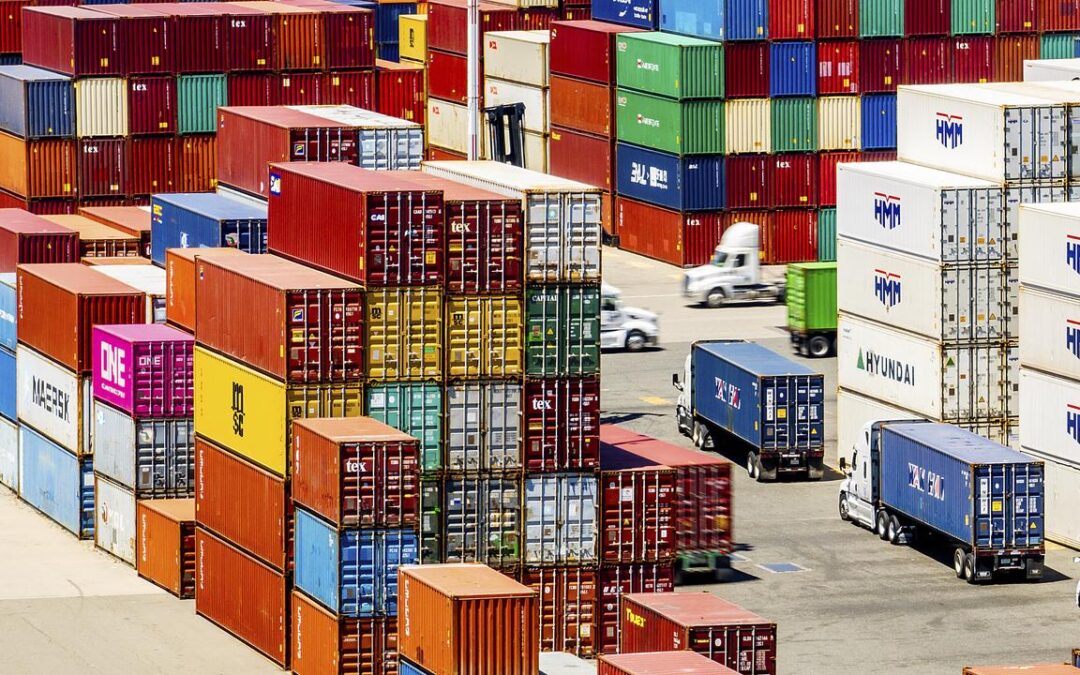
Markets plummet as Trump issues more steep tariffs
US President Donald Trump’s latest wave of tariffs on exports from dozens of trading partners sent global stock markets tumbling and countries and companies scrambling to seek ways to strike better deals.
As Trump presses ahead with plans to reorder the global economy with the highest tariff rates since the early 1930s, Switzerland, “stunned” by 39 per cent tariffs, sought more talks, as did India, hit with a 25 per cent rate.
New tariffs announced on Friday also included a 35 per cent duty on many goods from Canada, 50 per cent for Brazil, 20 per cent for Taiwan, which said its rate was “temporary” and it expected to reach a lower figure.
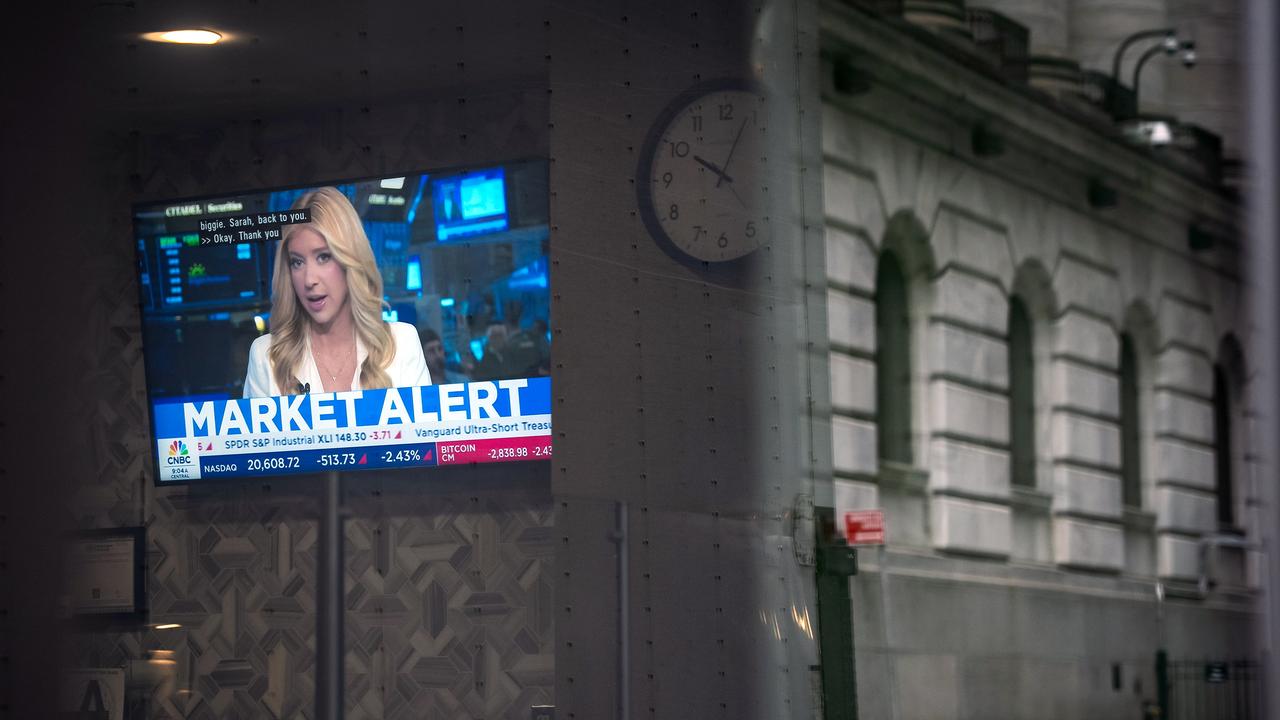
The presidential order listed higher import duty rates of 10 per cent to 41 per cent starting in a week’s time for 69 trading partners, taking the US effective tariff rate to about 18 per cent, from 2.3 per cent last year, according to analysts at Capital Economics.
US stocks took a hit. By afternoon on Friday, the Dow Jones Industrial Average had dropped 1.46 per cent to 43,486.45, the S&P 500 1.8 per cent to 6,225.55 and the Nasdaq Composite 2.42 per cent to 20,610.91.
Markets were also reacting to a disappointing jobs report. Data showed US job growth slowed more than expected in July while the prior month’s data was revised sharply lower, pointing to a slowdown in the labour market.
Global shares stumbled, with Europe’s STOXX 600 tumbling 1.89 per cent on the day.
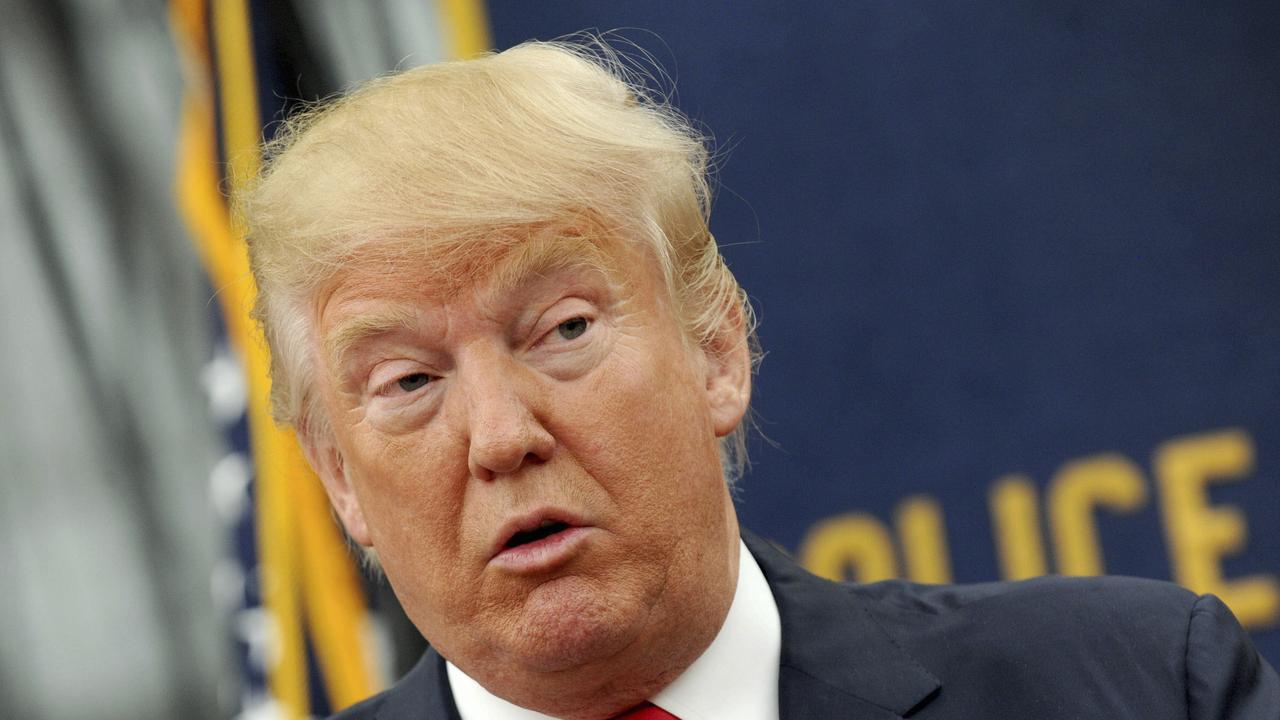
Trump’s new tariffs have created yet more uncertainty, with many details unclear. They are set to take effect on August 7, a White House official said.
Trump administration officials defended the president’s approach saying the uncertainty was “critical” for him to be able to leverage a better deal.
“The trade deals we’ve seen over the last few weeks… have been nothing short of monumental,” Council of Economic Advisers Chair Stephen Miran said on CNBC.
Trump’s tariff rollout also comes amid evidence they have begun driving up prices of home furnishings and household equipment.
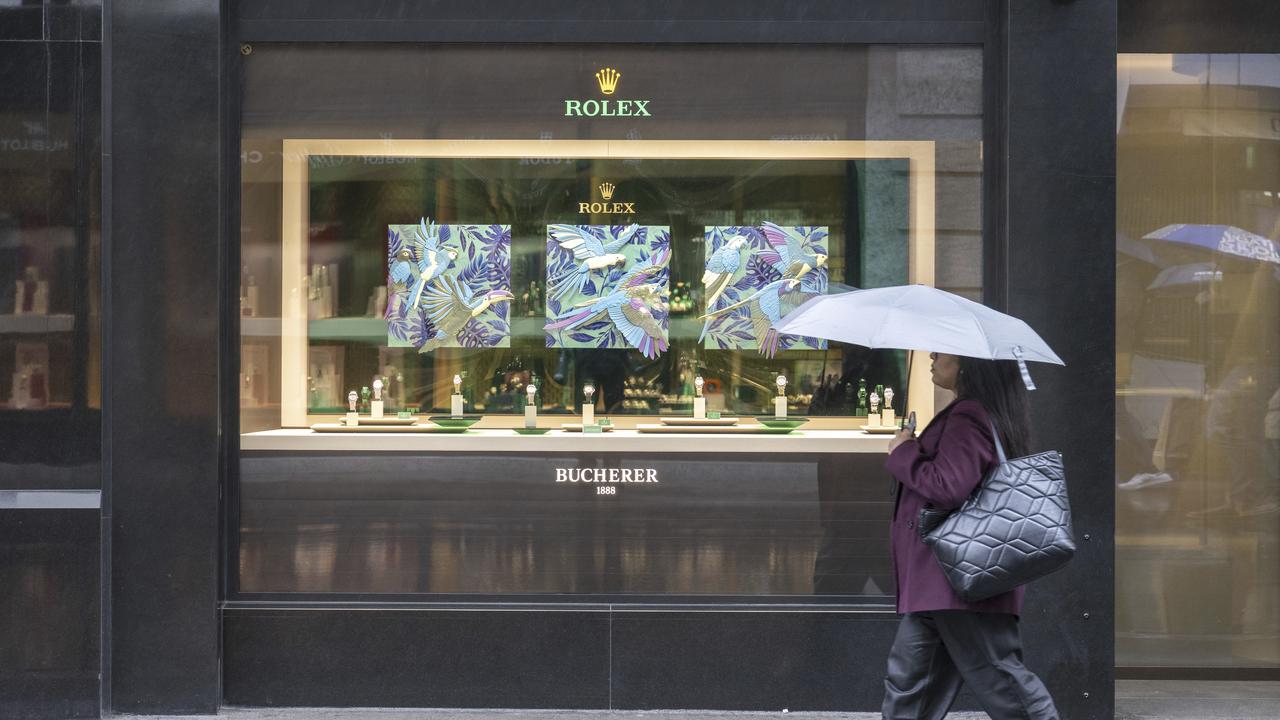
Australian products could become more competitive in the US market, helping businesses boost exports, Trade Minister Don Farrell said, after Trump kept the minimum tariff rate of 10 per cent for Australia.
The European Union, which struck a framework deal with Trump on Sunday, is still awaiting more Trump orders to deliver on agreed carve-outs, including on cars and aircraft, EU officials said, saying the latest executive orders did not cover that.
Switzerland said it would push for a “negotiated solution” with the US, with industry insiders saying they were “stunned” by the 39 per cent tariffs.
South Africa’s Trade Minister Parks Tau said he was seeking “real, practical interventions” to defend jobs and the economy against the 30 per cent US tariff it faces.
Southeast Asian countries largely breathed a sigh of relief after the US tariffs on their exports that were lower than threatened and leveled the playing field with a rate of about 19 per cent across the region’s biggest economies.
Thailand’s finance minister said a reduction from 36 per cent to 19 per cent would help his country’s economy.
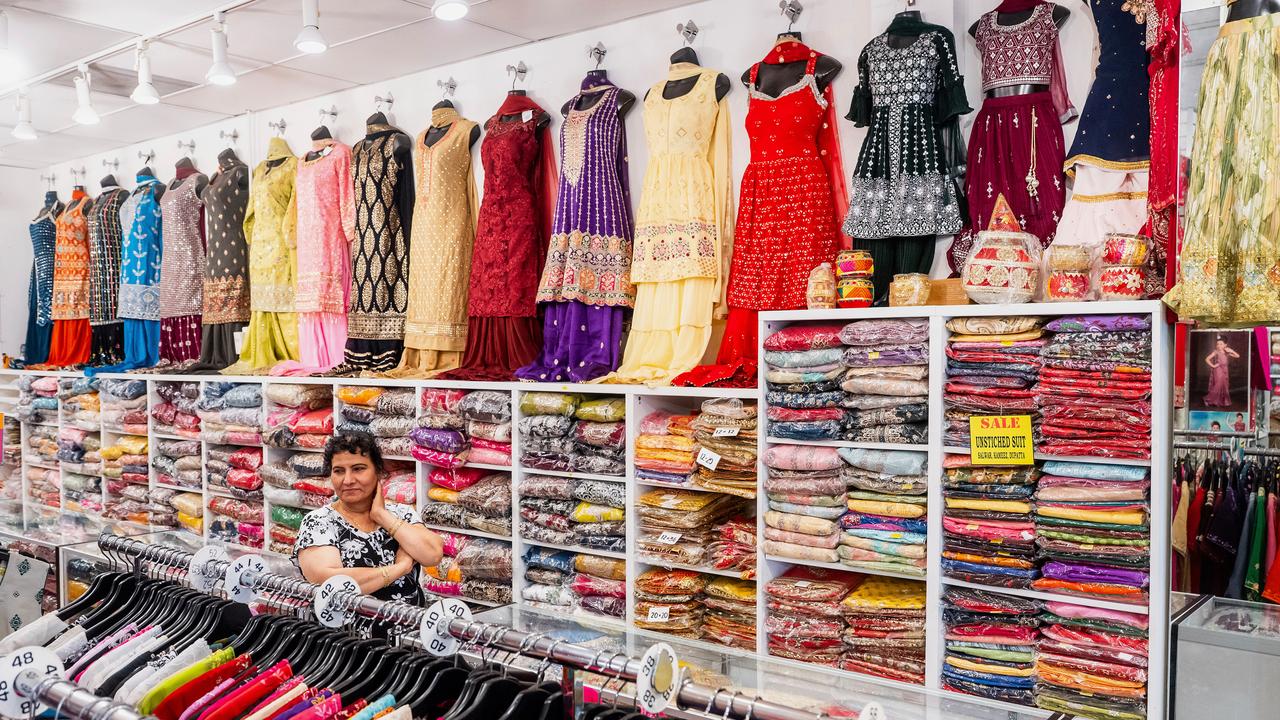
While India is in talks after being slapped with a 25 per cent tariff, which could impact about $US40 billion ($A62 billion) worth of its exports.
Trump issued a separate order for Canada that raises the rate on Canadian goods subject to fentanyl-related tariffs to 35 per cent, from 25 per cent previously, saying Canada had “failed to cooperate” in curbing illicit narcotics flows into the US.
This is contrast to his decision to allow Mexico a 90-day reprieve from higher tariffs to allow time to negotiate.
Businesses and analysts said the impact of Trump’s new trade regime would not be positive for economic growth.
“No real winners in trade conflicts,” said Thomas Rupf, co-head Singapore and CIO Asia at VP Bank.
“Despite some countries securing better terms, the overall impact is negative.”